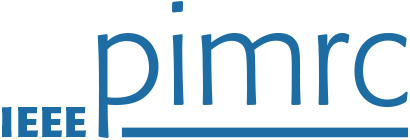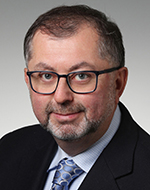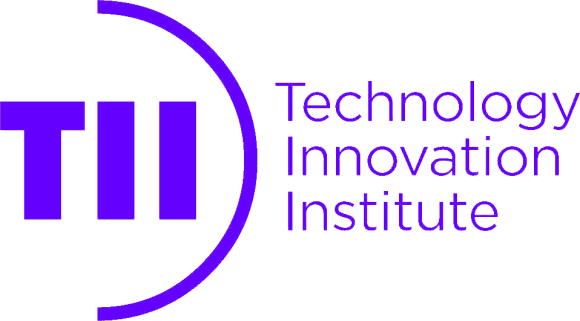List of Special Sessions
SS 1: 6G Empowered Vertical Industries
SS-2: The Role of Non-terrestrial Networks on 6G Communications: State-of-the-Art and Challenges
SS-3: Digest of ITU-R IMT-2030 Framework – The Global 6G Vision
SS 4: Next G Alliance Vision, Mission and Initiatives – Models of Public-Private Partnership for 6G
SS 5: IEEE Future Networks Roadmap towards 6G
SS 6: IEEE Innovation Testbed as a Mini Live Network to Accelerate 6G Innovations
SS-7: Halfway to Become a Professional (or What Career Should I Choose?)
SS-8: How to write Technical Papers
SS 9: Mingle with Distinguished Lectures 01
SS 10: Mingle with Distinguished Lectures 02
SS 11: Discussion around Research and Industry application in the space of Generative AI: Application, Challenges and Inference
SS 1: 6G Empowered Vertical Industries
Date: 06 September
Time: 11:00 – 12:30
Location: Metropolitan Centre
Abstract: A future is envisioned where 6G will allow to unleash the potential of smart connectivity for a secure, resilient and sustainable development of our society, which will further empower the vertical sectors and help them to continue on the journal of digital transformation. To successfully support the foreseen demand of vertical applications in different scenarios, mobile communication systems must be capable of supporting stringent performance requirements, ensure required service availability at anytime and anywhere, provide highly accurate environment awareness, support highly dynamic Quality of Service mechanism to ensure safety when in close proximity with humans, and enhance sensing capability to fully support vertical use cases. Vertical sectors have been a focus since 5G era, many network features have been defined especially for such purpose. In this industry session, we aim to invite academic researchers and industry experts who are actively working in this domain. We would like to discuss what has been learned from 5G, which topics will be continue evolving towards 6G, and which new features will appear in 6G that will be especially promising for variant vertical sectors. This special session is endorsed by NetworldEurope “Enabling Technologies for Future Vertical Ecosystem Transformation” Working Group.
Speakers:
- Dr. Mona Ghassemian (Moderator)
- Maziar Nekovee (University of Sussex UK)
- Christoph Thümmler (6GHI)
- Andreas Mueller
- Halim Yanikomeroglu
- Haris Gacanin (RWTH)
Moderator Bio:
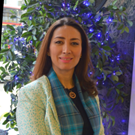 Mona Ghassemian has over 20 years of experience in the wireless and telecom research in industry and academia. She currently works as 6G principal expert on industry vertical, working on strategic R&D roadmap of key technologies relevant for next generation mobile communication system design at Huawei Advanced wireless Technology Lab. Prior to her current role, in her senior manager position at InterDigital Inc, she led a research team on the next generation networking. She worked as a principal research scientist at British Telecom Research and Technology with a focus on future networks and security. Prior to her industry roles, she worked as a lecturer and senior lecturer at KCL, Greenwich and SBU supervising over a 100 postdocs, PhD and MSc researchers. She has published over 70 papers, 13 patents, 2 book chapters and several contributions to 3GPP, IEEE and IETF standard organisations. She is a member of IEEE SA 1918.1 Tactile Internet WG and the IEEE UK & Ireland section past-chair.
Mona Ghassemian has over 20 years of experience in the wireless and telecom research in industry and academia. She currently works as 6G principal expert on industry vertical, working on strategic R&D roadmap of key technologies relevant for next generation mobile communication system design at Huawei Advanced wireless Technology Lab. Prior to her current role, in her senior manager position at InterDigital Inc, she led a research team on the next generation networking. She worked as a principal research scientist at British Telecom Research and Technology with a focus on future networks and security. Prior to her industry roles, she worked as a lecturer and senior lecturer at KCL, Greenwich and SBU supervising over a 100 postdocs, PhD and MSc researchers. She has published over 70 papers, 13 patents, 2 book chapters and several contributions to 3GPP, IEEE and IETF standard organisations. She is a member of IEEE SA 1918.1 Tactile Internet WG and the IEEE UK & Ireland section past-chair.
Speaker Bios:
 Prof. Maziar Nekovee is Dean of the AI Institute and Managing Director of 6G Lab (https://6g-lab.org) at University of Sussex UK. He currently co-leads a Network Plus academia-industry consortium with a focus on drastically reducing Co2 emission by creating an interconnected communication, energy and transportation networks, which seamlessly integrates and orchestrates renewables and electric vehicles in smart energy grids. Previous to joining academia in 2017 he was with Samsung, as Head of its European 5G research and collaborations, and prior to that he was with BT Applied Research. Maziar has significantly contributed to a number of industry standards in mobile communications and radio spectrum regulations in 3GPP, ETSI, CEPT, ITU and Ofcom. His current research focus is on energy efficient 6G, 5G and AI with applications in energy, transport and manufacturing/robotic sectors. He is co-chair of NetworldEurope Working Group on Verticals. Maziar has a PhD in Physics and first degree in Electrical and Electronic Engineering from Delft University of Technology, the Netherlands.
Prof. Maziar Nekovee is Dean of the AI Institute and Managing Director of 6G Lab (https://6g-lab.org) at University of Sussex UK. He currently co-leads a Network Plus academia-industry consortium with a focus on drastically reducing Co2 emission by creating an interconnected communication, energy and transportation networks, which seamlessly integrates and orchestrates renewables and electric vehicles in smart energy grids. Previous to joining academia in 2017 he was with Samsung, as Head of its European 5G research and collaborations, and prior to that he was with BT Applied Research. Maziar has significantly contributed to a number of industry standards in mobile communications and radio spectrum regulations in 3GPP, ETSI, CEPT, ITU and Ofcom. His current research focus is on energy efficient 6G, 5G and AI with applications in energy, transport and manufacturing/robotic sectors. He is co-chair of NetworldEurope Working Group on Verticals. Maziar has a PhD in Physics and first degree in Electrical and Electronic Engineering from Delft University of Technology, the Netherlands.
 Dr. Med. Christoph Thümmler is CMO of 6G Health Institute. He is specialist for General Internal Medicine, Geriatric Medicine, Emergency Medicine. He is a prime mover in healthcare innovation, drawing on his extensive research and medical work, and an internationally recognized expert in eHealth, IoT, smart pharma, e-connectivity, Industry 4.0, 5G.
Dr. Med. Christoph Thümmler is CMO of 6G Health Institute. He is specialist for General Internal Medicine, Geriatric Medicine, Emergency Medicine. He is a prime mover in healthcare innovation, drawing on his extensive research and medical work, and an internationally recognized expert in eHealth, IoT, smart pharma, e-connectivity, Industry 4.0, 5G.
His many achievements include:
- Successful delivery of research projects for the European Commission and UK funding bodies
- Over 15 years of industry consulting experience with relevant organizations (Huawei, Teva, AOK, Siemens, EC) with a focus on business analytics and change management.
- Over 10 years of project management experience (R&D)
- SME / Start up / Spin-out experience
- Thought leader, Convener Health Vertical 5G Association, frequent keynote speaker.
- 70 scientific peer reviewed publications, reports and books.
He is also an IEEE Senior Member with a wide international network stretching over academia, industry and government.
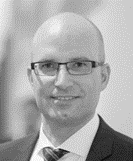 Dr. Andreas Mueller is the Head of Communication and Network Technology in the Corporate Research Department of Robert Bosch GmbH in Stuttgart, Germany and at the same time the Bosch Chief Expert for Communication Technologies for the IoT. In addition to that, he is coordinating the Industrial 5G activities of Bosch across the different business units. He also serves as General Chair of the “5G Alliance for Connected Industries and Automation” (5G-ACIA), which is the globally leading organization for driving and shaping Industrial 5G.
Dr. Andreas Mueller is the Head of Communication and Network Technology in the Corporate Research Department of Robert Bosch GmbH in Stuttgart, Germany and at the same time the Bosch Chief Expert for Communication Technologies for the IoT. In addition to that, he is coordinating the Industrial 5G activities of Bosch across the different business units. He also serves as General Chair of the “5G Alliance for Connected Industries and Automation” (5G-ACIA), which is the globally leading organization for driving and shaping Industrial 5G.
Prior to joining Bosch, Andreas was a Research Staff Member at the Institute of Telecommunications of the University of Stuttgart, Germany, where he was contributing to the further development of the 3GPP Long Term Evolution towards LTE-Advanced. Besides, he was working as a Systems Engineer for Rohde & Schwarz, developing a novel software-defined radio based communication system for the German Armed Forces. Andreas holds a German Diploma degree as well as a Ph.D. degree in Electrical Engineering (with distinction) and a M.Sc. degree in Information Technology, all from the University of Stuttgart, Germany.
Dr. Halim Yanikomeroglu is a Professor of Systems and Computer Engineering at Carleton University, Canada. His research group has made substantial contributions to 4G and 5G wireless technologies; his group’s current focus is the wireless access architecture for 2030s and 2040s, and non-terrestrial networks (NTN). His extensive collaboration with industry resulted in 39 granted patents. He is a Fellow of IEEE, EIC (Engineering Institute of Canada), and CAE (Canadian Academy of Engineering), and a Distinguished Speaker for both IEEE Communications Society and IEEE Vehicular Technology Society. Dr. Yanikomeroglu received several awards for his research, teaching, and service.
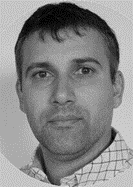 Prof. Haris Gačanin received his Dipl.-Ing. degree in Electrical engineering from the University of Sarajevo in 2000. In 2005 and 2008, respectively, he received MSc and PhD from Tohoku University in Japan. He was with Tohoku University from 2008 until 2010 first as Japan Society for Promotion of Science postdoctoral fellow and later, as Assistant Professor. In 2010, he joined Alcatel-Lucent, now Nokia, where he was a Department Head at Nokia Bell Labs until 2020. From 2017 until 2020 he was adjunct professor at University of Leuven (KU Leuven). Currently, he is a chair professor at RWTH Aachen University, Aachen, Germany.
Prof. Haris Gačanin received his Dipl.-Ing. degree in Electrical engineering from the University of Sarajevo in 2000. In 2005 and 2008, respectively, he received MSc and PhD from Tohoku University in Japan. He was with Tohoku University from 2008 until 2010 first as Japan Society for Promotion of Science postdoctoral fellow and later, as Assistant Professor. In 2010, he joined Alcatel-Lucent, now Nokia, where he was a Department Head at Nokia Bell Labs until 2020. From 2017 until 2020 he was adjunct professor at University of Leuven (KU Leuven). Currently, he is a chair professor at RWTH Aachen University, Aachen, Germany.
SS-2: The Role of Non-terrestrial Networks on 6G Communications: State-of-the-Art and Challenges
Date: 06 September
Time: 14:00 – 15:30
Location: Harbour B
Moderator: David López-Pérez (Universitat Politècnica de València)
Abstract: Terrestrial networks, based on cellular infrastructure, have limitations in coverage, capacity, and reliability. Providing connectivity in remote or sparsely populated areas has been shown particularly challenging, and existing networks struggle to meet the demands of data-intensive applications. Non-terrestrial networks (NTNs) in 6G, including satellite systems, high-altitude platforms (HAPS), and airborne platforms such as drones, offer advantages in overcoming these limitations. They can provide wide-area coverage, extending connectivity to rural and remote regions and bridging the digital divide. NTN technologies can also enhance network capacity and energy efficiency by offloading traffic from terrestrial networks. Additionally, NTN’s unique characteristics, such as global coverage and mobility support, make them suitable for maritime and aviation communications.
The seamless integration of terrestrial and non-terrestrial networks in the 6G ecosystem is expected to create a comprehensive and resilient communication infrastructure, ensuring reliable connectivity in diverse environments. However, realizing the full potential of NTNs in 6G still requires addressing technical and regulatory challenges. These include optimizing network architectures, enabling smooth handover between terrestrial and non-terrestrial systems, managing interference, developing efficient spectrum utilization strategies, and addressing the cost and complexity of deploying and maintaining NTN infrastructure. During this session discussion, we will have the opportunity to listen to top experts from academia and industry, as they shed light on the unprecedented challenges and novel solutions presented for NTNs.
Speakers:
- David López-Pérez (Universitat Politècnica de València)
- Helka-Liina Määttänen (Ericsson)
- Ismail Guvenc (NC State University)
- Peng Hu (National Research Council Canada/ University of Waterloo)
Speaker Bios:
 Dr. David López-Pérez is a Distinguished Researcher at Universitat Politècnica de València. Prior to this, David was an Expert and Technical Leader at Huawei Technologies, Paris, and a Distinguished Member of Staff at Nokia Bell Labs, Dublin. David has devoted most of his career to the study of both cellular and Wi-Fi networks, where his main research interests are in network performance analysis, both theoretical- and simulation-based, network planning and optimization, green networking, non-terrestrial networks as well as new technology and feature development. David’s main contributions are around the understanding of small cells and ultra-dense networks as well as green communications. He has also pioneered work on cellular and Wi-Fi inter-working and investigated both multi-antenna capabilities and ultra-reliable low latency features for future indoor networks. David was recognized as Bell Labs Distinguished Member of Staff in 2019, has authored a book on small cells and a book on ultra-dense networks, and has published more than 150 research manuscripts on a variety of related topics. David has filed 59 patents applications with more than 25 granted as of today and has received several prestigious awards (IEEE ComSoc Bet Young Professional 2016, IEEE WCNC 2019 Best student paper award, IEEE Globecom 2022 best paper award). Among others, David has also been project lead at Next Generation Mobile Networks (NGMN) Alliance and is a retired editor of IEEE TWC.
Dr. David López-Pérez is a Distinguished Researcher at Universitat Politècnica de València. Prior to this, David was an Expert and Technical Leader at Huawei Technologies, Paris, and a Distinguished Member of Staff at Nokia Bell Labs, Dublin. David has devoted most of his career to the study of both cellular and Wi-Fi networks, where his main research interests are in network performance analysis, both theoretical- and simulation-based, network planning and optimization, green networking, non-terrestrial networks as well as new technology and feature development. David’s main contributions are around the understanding of small cells and ultra-dense networks as well as green communications. He has also pioneered work on cellular and Wi-Fi inter-working and investigated both multi-antenna capabilities and ultra-reliable low latency features for future indoor networks. David was recognized as Bell Labs Distinguished Member of Staff in 2019, has authored a book on small cells and a book on ultra-dense networks, and has published more than 150 research manuscripts on a variety of related topics. David has filed 59 patents applications with more than 25 granted as of today and has received several prestigious awards (IEEE ComSoc Bet Young Professional 2016, IEEE WCNC 2019 Best student paper award, IEEE Globecom 2022 best paper award). Among others, David has also been project lead at Next Generation Mobile Networks (NGMN) Alliance and is a retired editor of IEEE TWC.
 Dr. Helka-Liina Määttänen (Senior, IEEE) holds a Ph.D. degree in communications engineering from the Helsinki University of Technology, Finland and is a Master Researcher at Ericsson Research, Finland. She has been contributing to the 3GPP standardization over 10 years. She is currently a delegate for 3GPP RAN2 working group where she has been handling a variety of topics including Non-Terrestrial Networks, Aerials, LTE-WLAN interworking, Multimedia Broadcast Multicast Service (MBMS), MIMO, 5G New Radio (NR) mobility and Network Energy Efficiency. She has served as work item (WI) TS 38.331 specification rapporteurship for NTN and MIMO as well as WI rapporteur for Aerials. In recent years she has published in satellites and aerials, and she is a coauthor of the book “UAV Communications for 5G and Beyond”, Wiley, published in December 2020 and “5G New Radio: A Beam-based Air Interface” Wiley, April 2020. Helka-Liina is a recipient of the Ericsson Inventor of the Year award 2023, the Scott Helt Award 2022 (Best Paper of the IEEE Transactions on Broadcasting) and the IEEE Communications Society Fred W. Ellersick Prize 2021. With her multifaceted involvement in research, standardization, patenting, and industry collaborations, Helka-Liina has established herself as a leading figure in the realm of 5G and wireless communication standards.
Dr. Helka-Liina Määttänen (Senior, IEEE) holds a Ph.D. degree in communications engineering from the Helsinki University of Technology, Finland and is a Master Researcher at Ericsson Research, Finland. She has been contributing to the 3GPP standardization over 10 years. She is currently a delegate for 3GPP RAN2 working group where she has been handling a variety of topics including Non-Terrestrial Networks, Aerials, LTE-WLAN interworking, Multimedia Broadcast Multicast Service (MBMS), MIMO, 5G New Radio (NR) mobility and Network Energy Efficiency. She has served as work item (WI) TS 38.331 specification rapporteurship for NTN and MIMO as well as WI rapporteur for Aerials. In recent years she has published in satellites and aerials, and she is a coauthor of the book “UAV Communications for 5G and Beyond”, Wiley, published in December 2020 and “5G New Radio: A Beam-based Air Interface” Wiley, April 2020. Helka-Liina is a recipient of the Ericsson Inventor of the Year award 2023, the Scott Helt Award 2022 (Best Paper of the IEEE Transactions on Broadcasting) and the IEEE Communications Society Fred W. Ellersick Prize 2021. With her multifaceted involvement in research, standardization, patenting, and industry collaborations, Helka-Liina has established herself as a leading figure in the realm of 5G and wireless communication standards.
 Prof. Ismail Guvenc (Fellow, IEEE) received his Ph.D. degree in electrical engineering from the University of South Florida in 2006. He was with Mitsubishi Electric Research Labs during 2005, with DOCOMO Innovations between 2006-2012, and with Florida International University between 2012-2016. He is a Professor at the Department of Electrical and Computer Engineering at North Carolina State University. His recent research interests include 5G/6G wireless networks, UAV communications, millimeter/terahertz communications, and heterogeneous networks. He has published more than 300 conference/journal papers and book chapters, several standardization contributions, four books, and over 30 U.S. patents. Dr. Guvenc is the PI and the director for the NSF AERPAW project and a site director for the NSF BWAC I/UCRC center. He is an IEEE Fellow, a senior member of the National Academy of Inventors, and recipient of several awards, including NC State University Faculty Scholar Award (2021), R. Ray Bennett Faculty Fellow Award (2019), FIU COE Faculty Research Award (2016), NSF CAREER Award (2015), Ralph E. Powe Junior Faculty Award (2014), and USF Outstanding Dissertation Award (2006).
Prof. Ismail Guvenc (Fellow, IEEE) received his Ph.D. degree in electrical engineering from the University of South Florida in 2006. He was with Mitsubishi Electric Research Labs during 2005, with DOCOMO Innovations between 2006-2012, and with Florida International University between 2012-2016. He is a Professor at the Department of Electrical and Computer Engineering at North Carolina State University. His recent research interests include 5G/6G wireless networks, UAV communications, millimeter/terahertz communications, and heterogeneous networks. He has published more than 300 conference/journal papers and book chapters, several standardization contributions, four books, and over 30 U.S. patents. Dr. Guvenc is the PI and the director for the NSF AERPAW project and a site director for the NSF BWAC I/UCRC center. He is an IEEE Fellow, a senior member of the National Academy of Inventors, and recipient of several awards, including NC State University Faculty Scholar Award (2021), R. Ray Bennett Faculty Fellow Award (2019), FIU COE Faculty Research Award (2016), NSF CAREER Award (2015), Ralph E. Powe Junior Faculty Award (2014), and USF Outstanding Dissertation Award (2006).
 Prof. Peng Hu (Senior, IEEE) is a Research Officer at the Digital Technologies Research Centre, National Research Council Canada (NRC), and an Adjunct Professor at the Cheriton School of Computer Science, University of Waterloo. He received his Ph.D. from Queen’s University. His research interests lie in space-air-ground integrated networks, non-terrestrial networks (NTNs), autonomous networking, and Internet of Things (IoT). He has led various research projects on the NTNs for rural and remote communities, LEO satellite communication, self-maintenance for NTN-integrated networks, IoT, network security, etc., supported by NSERC, NRC, OCE, the Optical SatCom Consortium, and other funding agencies in Canada. He currently serves as Co-Chair of the Technology Working Group of the IEEE LEO Satellites & Systems Project. He was one of the 15 fellows in the 2022 Internet Society’s Mid-Career Fellowship Program and was awarded the Innovative and Interdisciplinary Research Award and Inventor Fixed Milestone Awards at NRC. He has also served as a member of the review committees of Canada’s innovation and challenge programs, a voting member of the IEEE Sensors Council Standards committee, a technology advisor/member of the leading IoT industry consortia, and a member of organizing/technical program committees of various international conferences/workshops.
Prof. Peng Hu (Senior, IEEE) is a Research Officer at the Digital Technologies Research Centre, National Research Council Canada (NRC), and an Adjunct Professor at the Cheriton School of Computer Science, University of Waterloo. He received his Ph.D. from Queen’s University. His research interests lie in space-air-ground integrated networks, non-terrestrial networks (NTNs), autonomous networking, and Internet of Things (IoT). He has led various research projects on the NTNs for rural and remote communities, LEO satellite communication, self-maintenance for NTN-integrated networks, IoT, network security, etc., supported by NSERC, NRC, OCE, the Optical SatCom Consortium, and other funding agencies in Canada. He currently serves as Co-Chair of the Technology Working Group of the IEEE LEO Satellites & Systems Project. He was one of the 15 fellows in the 2022 Internet Society’s Mid-Career Fellowship Program and was awarded the Innovative and Interdisciplinary Research Award and Inventor Fixed Milestone Awards at NRC. He has also served as a member of the review committees of Canada’s innovation and challenge programs, a voting member of the IEEE Sensors Council Standards committee, a technology advisor/member of the leading IoT industry consortia, and a member of organizing/technical program committees of various international conferences/workshops.
SS-3: Digest of ITU-R IMT-2030 Framework – The Global 6G Vision
Date: 07 September
Time: 11:00 – 12:30
Location: Metropolitan Centre
Moderator: Javan Erfanian, Bell Canada, NGMN 6G Whitepaper Editor
Abstract: Today, wireless mobile technology has become a fundamental platform for the digital transformation of everything. While we experience the benefits of unified global 5G standards in their worldwide rollout, a unified global 6G standard is expected to pave the way for an intelligently connected future with transformative applications and services. With joint efforts from all over the world, ITU-R WP 5D successfully completed the draft new Recommendation for IMT-2030 (6G), which was finalized at the 44th meeting in Geneva on 22nd June 2023. This is a fundamental milestone in the development of 6G. In this special session, experts and industry leaders from all over the world come together to digest this newly defined Global 6G vision!
Speakers:
Nigel Jefferies, Chair of WWRF
Takehiro Nakamura, NTT Docomo, Chair of JP B5GPC
Peiying Zhu, Huawei Technologies, Senior VP
Wanshi Chen, Qualcomm, 3GPP RAN Chair
HyoungJin CHOI, Samsung, ITU-R SWG IMT-2030 Chair
Moderator Bio:
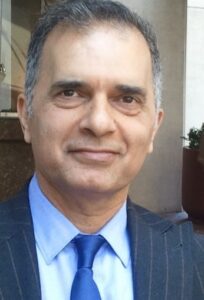 Javan Erfanian In his role as Distinguished Member of Technology, at Bell Canada, Javan primes wireless technology strategic direction. He has worked with global community, industry and research, towards vision and formulation of new technologies and service enablers, including several universities, NGMN, Next-G Alliance, ITU-R, O-RAN, ETSI, and IEEE. In particular, Javan was co-lead and chief editor of NGMN 5G initiative, and has been a co-lead or editor of NGMN’s work on 6G, Green & energy efficiency, and network disaggregation. He actively contributed to the ITU-R work on IMT-2030 framework. In his IEEE role, Javan has been an IEEE Communications Society Distinguished Speaker for many years, a recipient of Millennium medal in 2000, organizing chair of PIMRC’95, and a PIMRC contributor since then. Javan has also taught at the University of Toronto, with IEEE publications and many citations.
Javan Erfanian In his role as Distinguished Member of Technology, at Bell Canada, Javan primes wireless technology strategic direction. He has worked with global community, industry and research, towards vision and formulation of new technologies and service enablers, including several universities, NGMN, Next-G Alliance, ITU-R, O-RAN, ETSI, and IEEE. In particular, Javan was co-lead and chief editor of NGMN 5G initiative, and has been a co-lead or editor of NGMN’s work on 6G, Green & energy efficiency, and network disaggregation. He actively contributed to the ITU-R work on IMT-2030 framework. In his IEEE role, Javan has been an IEEE Communications Society Distinguished Speaker for many years, a recipient of Millennium medal in 2000, organizing chair of PIMRC’95, and a PIMRC contributor since then. Javan has also taught at the University of Toronto, with IEEE publications and many citations.
Speaker Bios:
 Nigel Jefferies is Chairman of the Wireless World Research Forum, a global partnership between industry and academia to develop a research agenda for mobile communications. Previously he was Head of Academic Relationships within Vodafone Group Research & Development and a Principal Mathematician at Racal Research Ltd. In the past he led the European-funded IST project SHAMAN, which studied the security of future mobile systems, and ran the Secure Applications Steering Group for Mobile VCE. Other collaborative research projects on various aspects of security for mobile communications include 3GS3 in the UK-funded LINK programme, and ASPeCT and USECA in the European ACTS programme. His research interests include cryptography, security of systems and applications of mathematics to telecommunications. He received a PhD in functional analysis from Goldsmith’s College, London, and an MA in mathematics from the Queen’s College, Oxford. He is a Senior Member of the IEEE, a Fellow of the Institute of Mathematics and its Applications and a Chartered Mathematician.
Nigel Jefferies is Chairman of the Wireless World Research Forum, a global partnership between industry and academia to develop a research agenda for mobile communications. Previously he was Head of Academic Relationships within Vodafone Group Research & Development and a Principal Mathematician at Racal Research Ltd. In the past he led the European-funded IST project SHAMAN, which studied the security of future mobile systems, and ran the Secure Applications Steering Group for Mobile VCE. Other collaborative research projects on various aspects of security for mobile communications include 3GS3 in the UK-funded LINK programme, and ASPeCT and USECA in the European ACTS programme. His research interests include cryptography, security of systems and applications of mathematics to telecommunications. He received a PhD in functional analysis from Goldsmith’s College, London, and an MA in mathematics from the Queen’s College, Oxford. He is a Senior Member of the IEEE, a Fellow of the Institute of Mathematics and its Applications and a Chartered Mathematician.
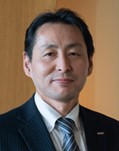 Mr. Takehiro Nakamura joined NTT Laboratories in 1990. He is now Chief Standardization Officer in NTT DOCOMO, Inc. Mr. Nakamura has been engaged in R&D and the standardization activities for advanced radio and network technologies of W-CDMA, HSPA, LTE/LTE-Advanced, 5G and 6G, and engaged in strengthening inter-industry collaboration. Mr. Nakamura has been contributing to standardization activities in 3GPP since 1999, including as vice chair and chair of 3GPP TSG-RAN from 2005 to 2013. He has also been the Acting Chairman of Strategy & Planning Committee and the leader of Millimeter wave Promotion Ad Hoc of 5G Mobile Communications Promotion Forum(5GMF), the leader of Cellular System Task Group of ITS Info-communications Forum, the leader of White Paper Subcommittee in Beyond 5G Promotion Consortium in Japan and the Board member of 5G-ACIA.
Mr. Takehiro Nakamura joined NTT Laboratories in 1990. He is now Chief Standardization Officer in NTT DOCOMO, Inc. Mr. Nakamura has been engaged in R&D and the standardization activities for advanced radio and network technologies of W-CDMA, HSPA, LTE/LTE-Advanced, 5G and 6G, and engaged in strengthening inter-industry collaboration. Mr. Nakamura has been contributing to standardization activities in 3GPP since 1999, including as vice chair and chair of 3GPP TSG-RAN from 2005 to 2013. He has also been the Acting Chairman of Strategy & Planning Committee and the leader of Millimeter wave Promotion Ad Hoc of 5G Mobile Communications Promotion Forum(5GMF), the leader of Cellular System Task Group of ITS Info-communications Forum, the leader of White Paper Subcommittee in Beyond 5G Promotion Consortium in Japan and the Board member of 5G-ACIA.
 Peiying Zhu, Senior Vice President of Wireless Research, is a Huawei Fellow, IEEE Fellow and Fellow of Canadian Academy of Engineering. She is currently leading 6G wireless research and standardization in Huawei. The focus of her research is advanced radio access technologies. She is actively involved in 3GPP and IEEE 802 standards development. She has been regularly giving talks and panel discussions on 5G/6G vision and enabling technologies. She led the team to contribute significantly to 5G technologies and standardization. Many technologies developed by the team have been adopted into 5G standards and implemented in 5G products. She served as the guest editor for IEEE Signal processing magazine special issue on the 5G revolution and IEEE JSAC on Deployment Issues and Performance Challenges for 5G. Prior to joining Huawei in 2009, Peiying was a Nortel Fellow and Director of Advanced Wireless Access Technology in the Nortel Wireless Technology Lab. She led the team and pioneered research and prototyping on MIMO-OFDM and Multi-hop relay, which were adopted into LTE standards and 4G products. Dr. Zhu has more than 200 granted patents.
Peiying Zhu, Senior Vice President of Wireless Research, is a Huawei Fellow, IEEE Fellow and Fellow of Canadian Academy of Engineering. She is currently leading 6G wireless research and standardization in Huawei. The focus of her research is advanced radio access technologies. She is actively involved in 3GPP and IEEE 802 standards development. She has been regularly giving talks and panel discussions on 5G/6G vision and enabling technologies. She led the team to contribute significantly to 5G technologies and standardization. Many technologies developed by the team have been adopted into 5G standards and implemented in 5G products. She served as the guest editor for IEEE Signal processing magazine special issue on the 5G revolution and IEEE JSAC on Deployment Issues and Performance Challenges for 5G. Prior to joining Huawei in 2009, Peiying was a Nortel Fellow and Director of Advanced Wireless Access Technology in the Nortel Wireless Technology Lab. She led the team and pioneered research and prototyping on MIMO-OFDM and Multi-hop relay, which were adopted into LTE standards and 4G products. Dr. Zhu has more than 200 granted patents.
 Wanshi Chen is currently 3GPP TSG RAN Plenary Chair appointed in April 2021. From August 2017 to May 2021, he was 3GPP TSG RAN1 Chair, where under this position, he has successfully managed and led successful delivery of the first and the second 5G New Radio (NR) releases. He was a RAN1 vice chair from August 2013 to August 2017. Wanshi has over 20 years of experiences in telecommunications in leading telecom companies including operators, infrastructure vendors, and chipset vendors. He has been with Qualcomm since 2006. The highest degree that Wanshi has received is a Ph.D. degree in electrical engineering from the University of Southern California, Los Angeles, CA, USA. Wanshi is an avid Marathon runner with a personal best time of 2 hours and 54 minutes.
Wanshi Chen is currently 3GPP TSG RAN Plenary Chair appointed in April 2021. From August 2017 to May 2021, he was 3GPP TSG RAN1 Chair, where under this position, he has successfully managed and led successful delivery of the first and the second 5G New Radio (NR) releases. He was a RAN1 vice chair from August 2013 to August 2017. Wanshi has over 20 years of experiences in telecommunications in leading telecom companies including operators, infrastructure vendors, and chipset vendors. He has been with Qualcomm since 2006. The highest degree that Wanshi has received is a Ph.D. degree in electrical engineering from the University of Southern California, Los Angeles, CA, USA. Wanshi is an avid Marathon runner with a personal best time of 2 hours and 54 minutes.
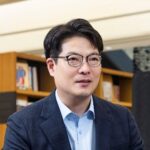 HyoungJin CHOI is the Global head of spectrum and regulatory standardization at Samsung Research, Samsung Electronics Co., Ltd. In this role, he is responsible for standardizing Samsung’s spectrum and regulatory standardization strategy and leading Samsung’s worldwide effort on spectrum and regulatory related matters. He has actively been contributing IMT related standardization and process (3G, 4G, 5G and recently 6G), particularly he is contributing as a Chair of SWG IMT-2030 (a.k.a. 6G Vision) in ITU-R Working Party 5D. He has also been actively involving in global and regional activities such as APT, ITU-R, CPM and WRC as well as industry-based organizations such as GSA and GSMA, in relation to spectrum-related standardization. He is currently a Chair of WRC-23 agenda item 10 (IMT-related) at APG, a WRC preparatory group in the Asia-Pacific Region. Also, he is contributing as a Vice Chair of GSA APT team.
HyoungJin CHOI is the Global head of spectrum and regulatory standardization at Samsung Research, Samsung Electronics Co., Ltd. In this role, he is responsible for standardizing Samsung’s spectrum and regulatory standardization strategy and leading Samsung’s worldwide effort on spectrum and regulatory related matters. He has actively been contributing IMT related standardization and process (3G, 4G, 5G and recently 6G), particularly he is contributing as a Chair of SWG IMT-2030 (a.k.a. 6G Vision) in ITU-R Working Party 5D. He has also been actively involving in global and regional activities such as APT, ITU-R, CPM and WRC as well as industry-based organizations such as GSA and GSMA, in relation to spectrum-related standardization. He is currently a Chair of WRC-23 agenda item 10 (IMT-related) at APG, a WRC preparatory group in the Asia-Pacific Region. Also, he is contributing as a Vice Chair of GSA APT team.
SS 4: Next G Alliance Vision, Mission and Initiatives – Models of Public-Private Partnership for 6G
Date: 08 September
Time: 11:00 – 12:30
Location: Metropolitan Centre
Moderator: Dr. Amitava Ghosh – Chair of the NGA Roadmap Working Group, Next G Alliance & Nokia
Speakers:
Dr. Amitava Ghosh, Chair of the NGA Roadmap Working Group, Next G Alliance & Nokia
Dr. Alhussein Abouzeid, Program Director, CNS Division, CISE Directorate NSF
Benoit Pelletier – Director, Edge AI Ecosystems, VMware, NGA Leadership
Jeff Andrews, Director, 6G@UT, Truchard Family Endowed Chair in Engineering, Professor, Electrical and Computer Engineering, The University of Texas at Austin
Dr. Ki-Dong Lee, LGE and chair of applications WG at Next G Alliance
Speaker Bios:
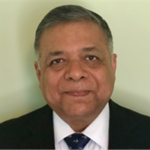 Dr. Amitabha (Amitava) Ghosh (F’15) is a Nokia Fellow and works at Nokia Standards and Strategy. He joined Motorola in 1990 after receiving his Ph.D in Electrical Engineering from Southern Methodist University, Dallas. Since joining Motorola he worked on multiple wireless technologies starting from IS-95, cdma-2000, 1xEV-DV/1XTREME, 1xEV-DO, UMTS, HSPA, 802.16e/WiMAX and 3GPP LTE. He has 60 issued patents, has written multiple book chapters and has authored numerous external and internal technical papers. He is currently working on 5G Evolution and 6G technologies. He is also the chair of the NextGA (an US 6G initiative) National Roadmap Working Group. His research interests are in the area of digital communications, signal processing and wireless communications. He is the recipient of 2016 IEEE Stephen O. Rice and 2017 Neal Shephard prize, member of IEEE Access editorial board and co-author of the books titled “Essentials of LTE and LTE-A” and “5G Enabled Industrial IoT Network”.
Dr. Amitabha (Amitava) Ghosh (F’15) is a Nokia Fellow and works at Nokia Standards and Strategy. He joined Motorola in 1990 after receiving his Ph.D in Electrical Engineering from Southern Methodist University, Dallas. Since joining Motorola he worked on multiple wireless technologies starting from IS-95, cdma-2000, 1xEV-DV/1XTREME, 1xEV-DO, UMTS, HSPA, 802.16e/WiMAX and 3GPP LTE. He has 60 issued patents, has written multiple book chapters and has authored numerous external and internal technical papers. He is currently working on 5G Evolution and 6G technologies. He is also the chair of the NextGA (an US 6G initiative) National Roadmap Working Group. His research interests are in the area of digital communications, signal processing and wireless communications. He is the recipient of 2016 IEEE Stephen O. Rice and 2017 Neal Shephard prize, member of IEEE Access editorial board and co-author of the books titled “Essentials of LTE and LTE-A” and “5G Enabled Industrial IoT Network”.
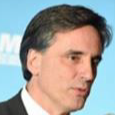 Benoit Pelletier is currently Director, Edge AI Ecosystems in the Advanced Technologies Telco Edge Cloud Business Unit at VMware with a Global mandate. Co-founder of the $400M ENCQOR 5G Public Private Partnership initiative with international collaboration between Canada, USA, Europe and UK, executive member of the board for Innovation ENCQOR, a NPO created to deliver this PPP across Quebec-Ontario corridor.
Benoit Pelletier is currently Director, Edge AI Ecosystems in the Advanced Technologies Telco Edge Cloud Business Unit at VMware with a Global mandate. Co-founder of the $400M ENCQOR 5G Public Private Partnership initiative with international collaboration between Canada, USA, Europe and UK, executive member of the board for Innovation ENCQOR, a NPO created to deliver this PPP across Quebec-Ontario corridor.
Creative thinker and passionate about collaborative innovation, disruptive technologies and execution! Proven leader with an intrapreneur mindset who creates rich and unique ecosystems that connect multinational corporations, SMBs, governments and academia.
“Innovate or Evaporate” has been his mantra over the last 30 years in different industry markets: Telecom at VMware, Ciena and Nortel, Transport at Bombardier and Military-Aerospace at Oerlikon Aerospace. Benoit held several leadership positions in design, system integration, program management and business development. Broad knowledge in Product Development and expertise in New Product Introduction of cutting-edge technologies along with government relationships. Benoit holds a Bachelor’s degree in Electrical Engineering from the University of Sherbrooke.
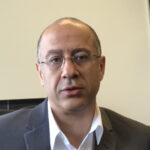 Dr. Alhussein Abouzeid is a Program Director in the Computer and Network Systems division (CNS), Computer and Information Science and Engineering (CISE) directorate of the U.S. National Science Foundation (NSF), where he also served from 2008 to 2010. He is on leave from Rensselaer Polytechnic Institute, Troy, NY, where he is as a Professor of Electrical, Computer, and Systems Engineering. He received his Ph.D. and M.S. degrees from University of Washington, Seattle, in 2001 and 1999, respectively, and the B.S. degree with honors from Cairo University, Cairo, Egypt, in 1993, all in electrical engineering. He received the Faculty Early Career Development Award (CAREER) from NSF in 2006, and the Finnish Distinguished Professor (FiDiPro) Fellow award from Tekes (now Business Finland) in 2014. He co-founded and managed several NSF programs and projects such as NSF Enhancing Access to Radio Spectrum funding program in 2010, WiFiUS US-Finland research consortium in 2012, and NSF RINGS public-private funding program in 2021. His research is in the area of computer networking and mobile computing, and his research has been funded by NSF and NIH. He served/serves as Associate Editor for Elsevier Computer Networks, IEEE Transactions on Wireless Communications, and IEEE Transactions on Mobile Computing. He is a member of IEEE and ACM, and has served on the organizing and technical committees of several conferences.
Dr. Alhussein Abouzeid is a Program Director in the Computer and Network Systems division (CNS), Computer and Information Science and Engineering (CISE) directorate of the U.S. National Science Foundation (NSF), where he also served from 2008 to 2010. He is on leave from Rensselaer Polytechnic Institute, Troy, NY, where he is as a Professor of Electrical, Computer, and Systems Engineering. He received his Ph.D. and M.S. degrees from University of Washington, Seattle, in 2001 and 1999, respectively, and the B.S. degree with honors from Cairo University, Cairo, Egypt, in 1993, all in electrical engineering. He received the Faculty Early Career Development Award (CAREER) from NSF in 2006, and the Finnish Distinguished Professor (FiDiPro) Fellow award from Tekes (now Business Finland) in 2014. He co-founded and managed several NSF programs and projects such as NSF Enhancing Access to Radio Spectrum funding program in 2010, WiFiUS US-Finland research consortium in 2012, and NSF RINGS public-private funding program in 2021. His research is in the area of computer networking and mobile computing, and his research has been funded by NSF and NIH. He served/serves as Associate Editor for Elsevier Computer Networks, IEEE Transactions on Wireless Communications, and IEEE Transactions on Mobile Computing. He is a member of IEEE and ACM, and has served on the organizing and technical committees of several conferences.
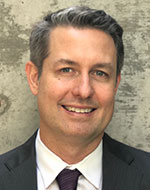 Jeffrey Andrews (S’98, M’02, SM’06, F’13) received the B.S. in Engineering with High Distinction from Harvey Mudd College, and the M.S. and Ph.D. in Electrical Engineering from Stanford University. He is the Truchard Family Chair in Engineering at the University of Texas at Austin where he is Director of the 6G@UT research center. He developed CDMA systems at Qualcomm, and has served as a consultant to Samsung, Nokia, Qualcomm, Apple, Verizon, AT&T, Intel, Microsoft, Sprint, and NASA. He is co-author of the books Fundamentals of WiMAX (Prentice-Hall, 2007) and Fundamentals of LTE (Prentice-Hall, 2010). He was the Editor-in-Chief of the IEEE Transactions on Wireless Communications from 2014-2016, and is the founding Chair of the Steering Committee for the IEEE Journal on Selected Areas in Information Theory (2018-23), and was Chair of the IEEE Communication Theory Technical Committee (2021-22). Dr. Andrews is an IEEE Fellow and ISI Highly Cited Researcher and has been co-recipient of 16 best paper awards including the 2016 IEEE Communications Society & Information Theory Society Joint Paper Award, the 2014 IEEE Stephen O. Rice Prize, the 2014 and 2018 IEEE Leonard G. Abraham Prize, the 2011 and 2016 IEEE Heinrich Hertz Prize, and the 2010 IEEE ComSoc Best Tutorial Paper Award. His other major awards include the 2015 Terman Award, the NSF CAREER Award, the 2021 Gordon Lepley Memorial Teaching Award at UT Austin, the 2021 IEEE ComSoc Joe LoCicero Service Award, the 2019 IEEE Wireless Communications Technical Committee Recognition Award, and the 2019 IEEE Kiyo Tomiyasu Award.
Jeffrey Andrews (S’98, M’02, SM’06, F’13) received the B.S. in Engineering with High Distinction from Harvey Mudd College, and the M.S. and Ph.D. in Electrical Engineering from Stanford University. He is the Truchard Family Chair in Engineering at the University of Texas at Austin where he is Director of the 6G@UT research center. He developed CDMA systems at Qualcomm, and has served as a consultant to Samsung, Nokia, Qualcomm, Apple, Verizon, AT&T, Intel, Microsoft, Sprint, and NASA. He is co-author of the books Fundamentals of WiMAX (Prentice-Hall, 2007) and Fundamentals of LTE (Prentice-Hall, 2010). He was the Editor-in-Chief of the IEEE Transactions on Wireless Communications from 2014-2016, and is the founding Chair of the Steering Committee for the IEEE Journal on Selected Areas in Information Theory (2018-23), and was Chair of the IEEE Communication Theory Technical Committee (2021-22). Dr. Andrews is an IEEE Fellow and ISI Highly Cited Researcher and has been co-recipient of 16 best paper awards including the 2016 IEEE Communications Society & Information Theory Society Joint Paper Award, the 2014 IEEE Stephen O. Rice Prize, the 2014 and 2018 IEEE Leonard G. Abraham Prize, the 2011 and 2016 IEEE Heinrich Hertz Prize, and the 2010 IEEE ComSoc Best Tutorial Paper Award. His other major awards include the 2015 Terman Award, the NSF CAREER Award, the 2021 Gordon Lepley Memorial Teaching Award at UT Austin, the 2021 IEEE ComSoc Joe LoCicero Service Award, the 2019 IEEE Wireless Communications Technical Committee Recognition Award, and the 2019 IEEE Kiyo Tomiyasu Award.
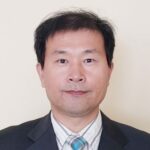 Ki-Dong Lee – As Assistant Vice President of Engineering, LG Electronics USA, Ki-Dong overseas new initiatives that would bring values to telecommunications ecosystem. He has over 25 years of professional experiences in research, development and standardization. Representing LG Electronics USA R&D, he served as the first 3GPP V2X Rapporteur, as Work Stream Chair of NGMN Alliance V2X TF, and as 3GPP SA1 Vice Chairman, contributing to successful completion of foundational 5G stage-1 specifications. He has received several awards from IEEE ComSoc APB, IFORS/APORS, Korea Math Society, LG Group, and SK Telecom. He is a Cloud Robotics enthusiast with the focus on how to help technology across multiple disciplines better designed to assist humans in various settings. Ki-Dong received his B.S., M.S., and Ph.D. degrees from Korea Advanced Institute of Science and Technology (KAIST). He currently serves as Chair of the Applications Working Group of Next G Alliance, ATIS.
Ki-Dong Lee – As Assistant Vice President of Engineering, LG Electronics USA, Ki-Dong overseas new initiatives that would bring values to telecommunications ecosystem. He has over 25 years of professional experiences in research, development and standardization. Representing LG Electronics USA R&D, he served as the first 3GPP V2X Rapporteur, as Work Stream Chair of NGMN Alliance V2X TF, and as 3GPP SA1 Vice Chairman, contributing to successful completion of foundational 5G stage-1 specifications. He has received several awards from IEEE ComSoc APB, IFORS/APORS, Korea Math Society, LG Group, and SK Telecom. He is a Cloud Robotics enthusiast with the focus on how to help technology across multiple disciplines better designed to assist humans in various settings. Ki-Dong received his B.S., M.S., and Ph.D. degrees from Korea Advanced Institute of Science and Technology (KAIST). He currently serves as Chair of the Applications Working Group of Next G Alliance, ATIS.
SS 5: IEEE Future Networks Roadmap towards 6G
Date: 08 September
Time: 11:00 – 12:30
Location: Harbour B
Moderator: Ashutosh Dutta, Chief 5G Strategist JHU/JPL, Chair at IEEE Future Networks Technical Community
Abstract: INGR (International Networks Generation Roadmap) is a key component of IEEE Future Networks Technical Community (futurenetworks.ieee.org). INGR consists of 14 working groups: Applications and Services, Artificial Intelligence and Machine Learning, Connecting the Unconnected, Deployment, Edge Services and Automation, Energy Efficiency, Hardware, Massive MIMO, Millimeter Wave and Signal Processing, Optics, Satellite, Standardization and Building Blocks, Systems Optimization, and Testbed. As the industry continues to advance, the evolution and deployment of network generations is influenced and impacted not only by emerging, evolving, and potential convergence of technologies, but also by local and world socio economic and health conditions (and politics). INGR is a living document that is updated annually. The inaugural INGR was released in 2020 and its focus was on the evolution of 5G networks. The intention of the 2022 INGR Edition was to take a more end-to-end perspective that included integrating future network technologies and establish a transdisciplinary framework and a predictive model for mobile networks. 2023 and the next two years will be a time of heavy 5G deployment, transformation at the edge, and increased interworking of network technologies and systems. Hence, the 2023 Edition of the IEEE Future Networks International Network Generations Roadmap (INGR) points to trends, challenges, and solutions in the current and near-term mobile network landscape, and the future vision as being cultivated through the activities of Standards Development Organizations (SDOs) and the industry around the globe. This 2023 INGR Edition broadens applications of the transdisciplinary framework, progresses each technology and system challenges and opportunities especially while interworking with other areas — while noting lessons learned that can be applied to beyond 5G. As part of this panel, the working group co-chairs will share the highlights of various INGR technology working groups and how these will affect the evolution of next generation networks and deployments over varying timelines.
- What roles IEEE Future Networks plays towards roadmap for 5G and 6G?
- What is the collaboration model for IEEE Future Networks with other SDOs such as Next G Alliance, ITU and 3GPP?
- How can IEEE Future Networks Roadmap help develop technologies for humanitarian challenges and address Digital Divide?
- What are various industry verticals that can benefit from IEEE Future Networks Roadmap?
- How can IEEE Future Networks help accelerate the deployment bringing Theory to Practice?
Speakers:
Saba Al-Rubaye, Professor at Cranfield University
Eman Hammad, Professor at Texas A&M University
Narendra Mangra, Principal at GlobeNet LLC
Fawzi Behmann, President at TelNet Management Consulting Inc.
Ashutosh Dutta, Chief 5G Strategist JHU/JPL, Chair at IEEE Future Networks Technical Community
Tracy Van Brakle – Principal Member of Technical Staff with AT&T Labs
Speaker Bios:
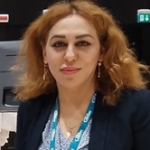 Prof Saba Al-Rubaye, is a Professor Chair in Telecommunications and Autonomous Systems at Cranfield University, United Kingdom in the School of Aerospace, Transport, and Manufacturing. Prof Al-Rubaye is an honoured member of the UK Government Telecoms Innovation Network (UKTIN), actively contributing to the advancement of the 6G ecosystem and cutting-edge technologies to drive innovation within the telecommunications industry and exploring its potential applications in future communication networks global. With an impressive career spanning over 20 years, Prof Al-Rubaye has accumulated vast experience in both industry and academia, showcasing her proficiency in initiating innovative solutions across various domains such as design, testing, consultation, leadership, and program development.
Prof Saba Al-Rubaye, is a Professor Chair in Telecommunications and Autonomous Systems at Cranfield University, United Kingdom in the School of Aerospace, Transport, and Manufacturing. Prof Al-Rubaye is an honoured member of the UK Government Telecoms Innovation Network (UKTIN), actively contributing to the advancement of the 6G ecosystem and cutting-edge technologies to drive innovation within the telecommunications industry and exploring its potential applications in future communication networks global. With an impressive career spanning over 20 years, Prof Al-Rubaye has accumulated vast experience in both industry and academia, showcasing her proficiency in initiating innovative solutions across various domains such as design, testing, consultation, leadership, and program development.
Prof Al-Rubaye actively contributes to the development of industry standards, serving as a voting member in IEEE P1932.1 standard for License/Unlicensed Interoperability and IEEE P1920.2 standard for Vehicle-to-Vehicle Communications for Unmanned Aircraft Systems. Her dedication to research excellence is evident in her numerous publications in prestigious IEEE journals and conferences, earning her distinguished recognition with best technical paper awards in IEEE Vehicular Technology in 2011 and 2015, as well as best paper awards in IEEE DASC conferences in 2020 and 2021. Prof Al-Rubaye registered as a Chartered Engineer (CEng), member of IET, and Senior Life Membership IEEE.
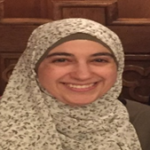 Dr. Eman Hammad is a cybersecurity & interdisciplinary professional focusing on trustworthy & resilient complex systems and emerging technologies. She is the director of the innovations in Systems Trust & Resilience (iSTAR) lab and professor of cybersecurity at Texas A&M University System. Recently, Eman was honored as one of Canada’s Top 20 Women in Cybersecurity. Eman is actively involved with several IEEE initiatives and activities including Toronto ComSoc chapter, Future Networks INGR, P1950.1 smart cities standard, and Public Safety Technology Initiative. She delivered numerous invited talks and panels in academic and industrial conferences, chaired and co-chaired several conferences and workshops. Her service has been recognized by IEEE exceptional, chapter achievement, and exemplary service awards. Eman is an active advocate for diversity and inclusion in STEM and Cybersecurity.
Dr. Eman Hammad is a cybersecurity & interdisciplinary professional focusing on trustworthy & resilient complex systems and emerging technologies. She is the director of the innovations in Systems Trust & Resilience (iSTAR) lab and professor of cybersecurity at Texas A&M University System. Recently, Eman was honored as one of Canada’s Top 20 Women in Cybersecurity. Eman is actively involved with several IEEE initiatives and activities including Toronto ComSoc chapter, Future Networks INGR, P1950.1 smart cities standard, and Public Safety Technology Initiative. She delivered numerous invited talks and panels in academic and industrial conferences, chaired and co-chaired several conferences and workshops. Her service has been recognized by IEEE exceptional, chapter achievement, and exemplary service awards. Eman is an active advocate for diversity and inclusion in STEM and Cybersecurity.
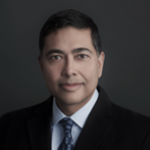 Narendra Mangra is a Principal at GlobeNet LLC and provides advisory and consulting services. across industry, government, and academia. His diverse experience spans strategy development, roadmap development, spectrum management, mobile network planning and system deployments, enterprise-wide modernization, program management, and education. He is an Adjunct Professor at the George Mason University. Narendra also leads several IEEE initiatives such as the Future Networks INGR, P1950.1 smart cities architecture standards development, Public Safety Technology Initiative, and the Telehealth and Transdisciplinary Framework Industry Connections. His current interests include comprehensive transdisciplinary frameworks, 5G and future networks, digital transformation, smart communities, and related ecosystems.
Narendra Mangra is a Principal at GlobeNet LLC and provides advisory and consulting services. across industry, government, and academia. His diverse experience spans strategy development, roadmap development, spectrum management, mobile network planning and system deployments, enterprise-wide modernization, program management, and education. He is an Adjunct Professor at the George Mason University. Narendra also leads several IEEE initiatives such as the Future Networks INGR, P1950.1 smart cities architecture standards development, Public Safety Technology Initiative, and the Telehealth and Transdisciplinary Framework Industry Connections. His current interests include comprehensive transdisciplinary frameworks, 5G and future networks, digital transformation, smart communities, and related ecosystems.
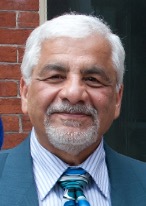 Fawzi Behmann is the founder and president of TelNet Management Consulting Inc. offering international professional services in technology trends and smart networking ecosystem solutions. He has held executive and leadership positions in communications and networking with Tier 1 companies in Canada and the US. He was the chief architect for development of Telecom Network Management systems for global carrier and edge/core product releases for networking company and director of strategic marketing for SoC semiconductor product lines.
Fawzi Behmann is the founder and president of TelNet Management Consulting Inc. offering international professional services in technology trends and smart networking ecosystem solutions. He has held executive and leadership positions in communications and networking with Tier 1 companies in Canada and the US. He was the chief architect for development of Telecom Network Management systems for global carrier and edge/core product releases for networking company and director of strategic marketing for SoC semiconductor product lines.
Fawzi is a distinguished Lecturer and keynote speaker at national and international conferences, and has several publications, including co-authoring a book on Collaborative Internet of Things. He is a Co-founder of the “IoT in Healthcare Consortium” of Intelligent Health Association and serves as a faculty advisor with Texas State school of Engineering and member of IEEE-HKN.
As a senior member and volunteer with IEEE, Fawzi is serving as the North America Director for Communications Society and BOG member. He is a voting member of IEEE Conference Committee, FNTC SC Chair elect, Co-Chair of Future Network Education working group, Co-Chair of IEEE Transdisciplinary Framework working group and contributor to Future Network Roadmap’s security, applications & services working groups. Fawzi chaired several conferences, summits, and panels. Among the most recent is the General Chair of IEEE WCNC 2022.
Fawzi has received multiple awards for his professional leadership, including the IEEE USA professional leadership award, IEEE Communications Society NAB Exceptional Service Award, and IEEE ComSoc Chapter of the Year and Chapter Achievement Awards, CEO Diamond chip award among others. He holds an MBA, master’s in computer science, and bachelor’s in science with Honors in Mathematics with Distinction.
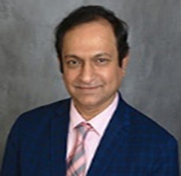 Ashutosh Dutta is currently Chief 5G Strategist and JHU/APL Sabbatical Fellow at Johns Hopkins University Applied Physics Labs (JHU/APL), USA. He also serves as Chair for Electrical and Computer Engineering for Engineering Professional Program at JHU. His career, spanning more than 30 years, includes Director of Technology Security and Lead Member of Technical Staff at AT&T, CTO of Wireless at a Cybersecurity company NIKSUN, Inc., Senior Scientist in Telcordia Research, Director of Central Research Facility at Columbia University, adjunct faculty at NJIT, and Computer Engineer with TATA Motors. Ashutosh is author of more than 120 technical papers and 31 issued patents. Ashutosh has been serving as the founding Co-Chair for the IEEE Future Networks that focuses on 5G standardization, education, publications, testbed, and roadmap activities. Ashutosh is IEEE Communications Society’s Distinguished Lecturer for 2017-2020 and as an ACM Distinguished Speaker (2020-2022). Ashutosh currently serves as Member-At-Large for IEEE Communications Society. He co founded the IEEE STEM conference (ISEC) and helped to implement EPICS (Engineering Projects in Community Service) projects in several high schools. He was recipient of 2009 IEEE MGA Leadership award. Ashutosh is recipient of IEEE-USA’s 2010 Professional Leadership Award, 2022 IEEE-USA George F. McClure Citation of Honor. He also received 2022 IEEE North American Region Exceptional Service Award. Ashutosh has served as the founding Co-Chair for the premier IEEE 5G World Forums and has organized 90 5G World Summits around the world. Ashutosh currently serves as the Chair for IEEE Industry Connection’s O-RAN activities and IPv6. Ashutosh is a Distinguished Alumnus of NIT Rourkela with BS in Electrical Engineering, MS in Computer Science from NJIT, and Ph.D. in Electrical Engineering from Columbia University under the supervision of Prof. Henning Schulzrinne. Ashutosh is a Fellow of IEEE, member of IEEE-HKN, and Distinguished member ACM.
Ashutosh Dutta is currently Chief 5G Strategist and JHU/APL Sabbatical Fellow at Johns Hopkins University Applied Physics Labs (JHU/APL), USA. He also serves as Chair for Electrical and Computer Engineering for Engineering Professional Program at JHU. His career, spanning more than 30 years, includes Director of Technology Security and Lead Member of Technical Staff at AT&T, CTO of Wireless at a Cybersecurity company NIKSUN, Inc., Senior Scientist in Telcordia Research, Director of Central Research Facility at Columbia University, adjunct faculty at NJIT, and Computer Engineer with TATA Motors. Ashutosh is author of more than 120 technical papers and 31 issued patents. Ashutosh has been serving as the founding Co-Chair for the IEEE Future Networks that focuses on 5G standardization, education, publications, testbed, and roadmap activities. Ashutosh is IEEE Communications Society’s Distinguished Lecturer for 2017-2020 and as an ACM Distinguished Speaker (2020-2022). Ashutosh currently serves as Member-At-Large for IEEE Communications Society. He co founded the IEEE STEM conference (ISEC) and helped to implement EPICS (Engineering Projects in Community Service) projects in several high schools. He was recipient of 2009 IEEE MGA Leadership award. Ashutosh is recipient of IEEE-USA’s 2010 Professional Leadership Award, 2022 IEEE-USA George F. McClure Citation of Honor. He also received 2022 IEEE North American Region Exceptional Service Award. Ashutosh has served as the founding Co-Chair for the premier IEEE 5G World Forums and has organized 90 5G World Summits around the world. Ashutosh currently serves as the Chair for IEEE Industry Connection’s O-RAN activities and IPv6. Ashutosh is a Distinguished Alumnus of NIT Rourkela with BS in Electrical Engineering, MS in Computer Science from NJIT, and Ph.D. in Electrical Engineering from Columbia University under the supervision of Prof. Henning Schulzrinne. Ashutosh is a Fellow of IEEE, member of IEEE-HKN, and Distinguished member ACM.
 Tracy Van Brakle is a Principal Member of Technical Staff with AT&T Labs – Wireless Technologies. She is a co-chair and/or contributor within several open-source projects and standards development organizations (SDOs) as well as Principal Investigator (PI) for INDIGO (Intelligent 5G Networks Designed and Integrated for Globalized Operations), a recent awardee of the NSF Convergence Accelerator program. INDIGO involves integrating and automating open RAN technologies using model-driven interface specifications from O-RAN, 3GPP, and other SDOs, to address the security and resilience requirements of both military and civilian search-and-rescue teams. Tracy is also Co-PI or Industry Affiliate for NSF SII-NRDZ (Spectrum Innovation Initiative – National Radio Dynamic Zones) and NSF Regional Innovation Engines. Before joining AT&T, Tracy was a Senior Technologist with Goldman Sachs. She holds 17 active US patents in Wireless Technologies.
Tracy Van Brakle is a Principal Member of Technical Staff with AT&T Labs – Wireless Technologies. She is a co-chair and/or contributor within several open-source projects and standards development organizations (SDOs) as well as Principal Investigator (PI) for INDIGO (Intelligent 5G Networks Designed and Integrated for Globalized Operations), a recent awardee of the NSF Convergence Accelerator program. INDIGO involves integrating and automating open RAN technologies using model-driven interface specifications from O-RAN, 3GPP, and other SDOs, to address the security and resilience requirements of both military and civilian search-and-rescue teams. Tracy is also Co-PI or Industry Affiliate for NSF SII-NRDZ (Spectrum Innovation Initiative – National Radio Dynamic Zones) and NSF Regional Innovation Engines. Before joining AT&T, Tracy was a Senior Technologist with Goldman Sachs. She holds 17 active US patents in Wireless Technologies.
SS 6: IEEE Innovation Testbed as a Mini Live Network to Accelerate 6G Innovations
Date: 08 September
Time: 14:00 – 15:30
Location: Harbour B
Moderator: Anwer Al-Dulaimi – Senior Manager of Emerging technologies and Innovations, EXFO
Abstract: The IEEE 5G/6G Innovation Testbed is a unique investment by IEEE aimed at building a semi-live network operating over the cloud. Its purpose is to accelerate network innovations, testing of new components, and also serve as a hub for PoCs. The platform is constructed using open-source components to replicate a real standalone 5G network. It incorporates multiple architectures, including a fully virtualized suite of core and RAN/UE simulators, a 5G core integrated with MEC and physical base stations, an O-RAN integrated frontend, and various other planned frameworks. This testbed provides unique capabilities for testing current 5G elements and helps foster the integration of advanced 5G technologies. Since the platform is built using open-source and Open API, it facilitates any envisioned or required adjustments to define and invent elements of 6G.
The goal of this project is to develop a collaborative platform that brings value to individual member companies while encouraging and facilitating reduced-cost collaborative innovation. The testbed is also a valuable learning center for academia, enabling the training of students on a real network and providing a platform for testing ideas and algorithms to develop more realistic solutions and produce actual performance data. The current inaugural members of the testbed are EXFO, AT&T, VMware, China Mobile, and Samsung. They will provide oversight for the deployment of the platform’s basic infrastructure, with Tech Mahindra serving as the lead developer. Furthermore, the project is actively recruiting new industrial members to create a forum for technology evolution and standardization, fostering collaboration between visionary experts, engineering teams, and vertical industries.
In the long term, the platform will integrate a test controller and Open API layer to facilitate connection with federated testbeds as part of our ITU engagements. This industry panel aims to introduce the research communities to the new capabilities and collaboration opportunities offered by this platform. The discussions and presentations from member companies will revolve around technology evolution, advancements in 5G leading to 6G horizons, knowledge transformation, and adoption of new innovations by standards. The project members recognize the IEEE International Symposium on Personal, Indoor and Mobile Radio Communications (PIMRC) as the most relevant venue for this initiative and have submitted this proposal for consideration by the industrial panel committee.
Questions
The main five questions this panel will answer would be:
- How may a testbed structured as a live network influence technology testing and academic research
- How can testbeds be integrated into network infrastructure as a vital component to improve awareness of network status changes, digital twins, metaverse, AI, and closed-loop automation?
- What are the key elements required to enhance federated and intelligent testing of 5G and 6G networks
- What are potential new use cases where testbeds can serve as proof-of-concept for final operator deployments?
- What role does the IEEE testbed play in the development of new standards, and how does it relate to other projects like Open RAN?
Speakers:
Anwer Al-Dulaimi – Senior Manager of Emerging technologies and Innovations, EXFO
Benoit Pelletier – Director, Edge AI Ecosystems, VMware (TBC)
Ashutosh Dutta – Chief 5G Strategist JHU/APL, Chair, IEEE Future Networks Technical Community
Güneş Karabulut-Kurt, Polytechnique Montréal, Canada
Tracy Van Brakle – Principal Member of Technical Staff, AT&T (TBC)
Speaker Bios:
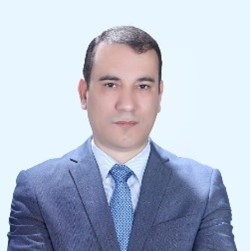 Anwer Al-Dulaimi is currently a Senior Manager of Emerging technologies & Innovations and Distinguished Member of Technical Staff at EXFO Inc., Montreal, Canada. He received the Ph.D. degree in electrical and computer engineering from Brunel University, London, U.K., in 2012 after receiving M.Sc. and B.Sc. honors degrees in communication engineering. He was a Postdoctoral Fellow in the Department of Electrical and Computer Engineering, University of Toronto, sponsored by Blackberry’s advanced research team. He is the chair of the newly established IEEE 5G/6G Innovation Testbed Project working to develop a virtual testing platform for E2E network innovation. He is the chair of the IEEE 1932.1 ‘Standard for Licensed/Unlicensed Spectrum Interoperability in Wireless Mobile Network’. He is the Editor of IEEE Future Networks Series on 5G & 6G published by IEEE Vehicular technology Magazine, editor of Vehicular Networking Series in IEEE Communication Standards Magazine and guest editor of many other IEEE series issues. His research interests include 5G and 6G networks, cloud computing, Blockchains and cybersecurity. He was the recipient of the 2013 Worldwide Universities Network best paper for outstanding research in cognitive communications, best IEEE/WWRF VTM best paper award for 3 times. He is a Fellow of the Institution of Engineering and Technology (FIET), Associate Fellow of the British higher education Academy (AFHEA) and registered as a Chartered Engineer (CEng) by the British Engineering Council since 2010. He is an IEEE Distinguished Lecturer and a voting member of IEEE MobiNet Standards Committee.
Anwer Al-Dulaimi is currently a Senior Manager of Emerging technologies & Innovations and Distinguished Member of Technical Staff at EXFO Inc., Montreal, Canada. He received the Ph.D. degree in electrical and computer engineering from Brunel University, London, U.K., in 2012 after receiving M.Sc. and B.Sc. honors degrees in communication engineering. He was a Postdoctoral Fellow in the Department of Electrical and Computer Engineering, University of Toronto, sponsored by Blackberry’s advanced research team. He is the chair of the newly established IEEE 5G/6G Innovation Testbed Project working to develop a virtual testing platform for E2E network innovation. He is the chair of the IEEE 1932.1 ‘Standard for Licensed/Unlicensed Spectrum Interoperability in Wireless Mobile Network’. He is the Editor of IEEE Future Networks Series on 5G & 6G published by IEEE Vehicular technology Magazine, editor of Vehicular Networking Series in IEEE Communication Standards Magazine and guest editor of many other IEEE series issues. His research interests include 5G and 6G networks, cloud computing, Blockchains and cybersecurity. He was the recipient of the 2013 Worldwide Universities Network best paper for outstanding research in cognitive communications, best IEEE/WWRF VTM best paper award for 3 times. He is a Fellow of the Institution of Engineering and Technology (FIET), Associate Fellow of the British higher education Academy (AFHEA) and registered as a Chartered Engineer (CEng) by the British Engineering Council since 2010. He is an IEEE Distinguished Lecturer and a voting member of IEEE MobiNet Standards Committee.
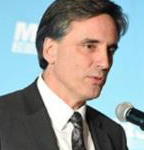 Benoit Pelletier is currently Director, Edge AI Ecosystems in the Advanced Technologies Telco Edge Cloud Business Unit at VMware with a Global mandate. Co-founder of the $400M ENCQOR 5G Public Private Partnership initiative with international collaboration between Canada, USA, Europe and UK, executive member of the board for Innovation ENCQOR, a NPO created to deliver this PPP across Quebec-Ontario corridor.
Benoit Pelletier is currently Director, Edge AI Ecosystems in the Advanced Technologies Telco Edge Cloud Business Unit at VMware with a Global mandate. Co-founder of the $400M ENCQOR 5G Public Private Partnership initiative with international collaboration between Canada, USA, Europe and UK, executive member of the board for Innovation ENCQOR, a NPO created to deliver this PPP across Quebec-Ontario corridor.
Creative thinker and passionate about collaborative innovation, disruptive technologies and execution! Proven leader with an intrapreneur mindset who creates rich and unique ecosystems that connect multinational corporations, SMBs, governments and academia.
“Innovate or Evaporate” has been his mantra over the last 30 years in different industry markets: Telecom at VMware, Ciena and Nortel, Transport at Bombardier and Military-Aerospace at Oerlikon Aerospace. Benoit held several leadership positions in design, system integration, program management and business development. Broad knowledge in Product Development and expertise in New Product Introduction of cutting-edge technologies along with government relationships. Benoit holds a Bachelor’s degree in Electrical Engineering from the University of Sherbrooke.
 Ashutosh Dutta is currently Chief 5G Strategist and JHU/APL Sabbatical Fellow at Johns Hopkins University Applied Physics Labs (JHU/APL), USA. He also serves as Chair for Electrical and Computer Engineering for Engineering Professional Program at JHU. His career, spanning more than 30 years, includes Director of Technology Security and Lead Member of Technical Staff at AT&T, CTO of Wireless at a Cybersecurity company NIKSUN, Inc., Senior Scientist in Telcordia Research, Director of Central Research Facility at Columbia University, adjunct faculty at NJIT, and Computer Engineer with TATA Motors. Ashutosh is author of more than 100 technical papers and 31 issued patents. Ashutosh is co-author of the book, titled, “Mobility Protocols and Handover Optimization: Design, Evaluation and Application” published by IEEE and John & Wiley. As a Technical Leader in 5G and security, Ashutosh has been serving as the founding Co-Chair for the IEEE Future Networks Initiative that focuses on 5G standardization, education, publications, testbed, and roadmap activities. Ashutosh currently serves as the Chair for IEEE Industry Connection’s O-RAN activities. He is a Distinguished Alumnus of NIT Rourkela with BS in Electrical Engineering, MS in Computer Science from NJIT, and Ph.D. in Electrical Engineering from Columbia University under the supervision of Prof. Henning Schulzrinne. Ashutosh is a Fellow of IEEE and Distinguished member ACM.
Ashutosh Dutta is currently Chief 5G Strategist and JHU/APL Sabbatical Fellow at Johns Hopkins University Applied Physics Labs (JHU/APL), USA. He also serves as Chair for Electrical and Computer Engineering for Engineering Professional Program at JHU. His career, spanning more than 30 years, includes Director of Technology Security and Lead Member of Technical Staff at AT&T, CTO of Wireless at a Cybersecurity company NIKSUN, Inc., Senior Scientist in Telcordia Research, Director of Central Research Facility at Columbia University, adjunct faculty at NJIT, and Computer Engineer with TATA Motors. Ashutosh is author of more than 100 technical papers and 31 issued patents. Ashutosh is co-author of the book, titled, “Mobility Protocols and Handover Optimization: Design, Evaluation and Application” published by IEEE and John & Wiley. As a Technical Leader in 5G and security, Ashutosh has been serving as the founding Co-Chair for the IEEE Future Networks Initiative that focuses on 5G standardization, education, publications, testbed, and roadmap activities. Ashutosh currently serves as the Chair for IEEE Industry Connection’s O-RAN activities. He is a Distinguished Alumnus of NIT Rourkela with BS in Electrical Engineering, MS in Computer Science from NJIT, and Ph.D. in Electrical Engineering from Columbia University under the supervision of Prof. Henning Schulzrinne. Ashutosh is a Fellow of IEEE and Distinguished member ACM.
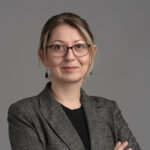 Gunes Karabulut Kurt received the B.S. degree with high honors in electronics and electrical engineering from Bogazici University, Istanbul, Turkey, in 2000 and the M.A.Sc. and the Ph.D. degrees in electrical engineering from the University of Ottawa, ON, Canada, in 2002 and 2006, respectively. Between 2005 and 2006, she was with TenXc Wireless, Canada. From 2006 to 2008, Dr. Karabulut Kurt was with Edgewater Computer Systems Inc., Canada. From 2008 to 2010, she was with Turkcell Research and Development Applied Research and Technology, Istanbul. Between 2010 and 2021, she was with Istanbul Technical University. She is currently an Associate Professor of Electrical Engineering at Polytechnique Montréal, Montréal, QC, Canada. She is a Marie Curie Fellow and has received the Turkish Academy of Sciences Outstanding Young Scientist (TÜBA-GEBIP) Award in 2019. In addition, she is an adjunct research professor at Carleton University. She is currently serving as an associate technical editor of the IEEE Communications Magazine, an associate editor of IEEE Communication Letters, an associate editor of IEEE Wireless Communications Letters, and an area editor of IEEE Transactions on Machine Learning in Communications and Networking. She is a member of the IEEE WCNC Steering Board. She is serving as the secretary of IEEE Satellite and Space Communications Technical Committee and also the chair of the IEEE special interest group entitled “Satellite Mega-constellations: Communications and Networking”. She is a Distinguished Lecturer of Vehicular Technology Society Class of 2022.
Gunes Karabulut Kurt received the B.S. degree with high honors in electronics and electrical engineering from Bogazici University, Istanbul, Turkey, in 2000 and the M.A.Sc. and the Ph.D. degrees in electrical engineering from the University of Ottawa, ON, Canada, in 2002 and 2006, respectively. Between 2005 and 2006, she was with TenXc Wireless, Canada. From 2006 to 2008, Dr. Karabulut Kurt was with Edgewater Computer Systems Inc., Canada. From 2008 to 2010, she was with Turkcell Research and Development Applied Research and Technology, Istanbul. Between 2010 and 2021, she was with Istanbul Technical University. She is currently an Associate Professor of Electrical Engineering at Polytechnique Montréal, Montréal, QC, Canada. She is a Marie Curie Fellow and has received the Turkish Academy of Sciences Outstanding Young Scientist (TÜBA-GEBIP) Award in 2019. In addition, she is an adjunct research professor at Carleton University. She is currently serving as an associate technical editor of the IEEE Communications Magazine, an associate editor of IEEE Communication Letters, an associate editor of IEEE Wireless Communications Letters, and an area editor of IEEE Transactions on Machine Learning in Communications and Networking. She is a member of the IEEE WCNC Steering Board. She is serving as the secretary of IEEE Satellite and Space Communications Technical Committee and also the chair of the IEEE special interest group entitled “Satellite Mega-constellations: Communications and Networking”. She is a Distinguished Lecturer of Vehicular Technology Society Class of 2022.
 Tracy Van Brakle is a Principal Member of Technical Staff with AT\&T Labs – Wireless Technologies. She is a co-chair and/or contributor within several open-source projects and standards development organizations (SDOs) as well as Principal Investigator (PI) for INDIGO (Intelligent 5G Networks Designed and Integrated for Globalized Operations), a recent awardee of the NSF Convergence Accelerator program. INDIGO involves integrating and automating open RAN technologies using model-driven interface specifications from O-RAN, 3GPP, and other SDOs, to address the security and resilience requirements of both military and civilian search-and-rescue teams. Tracy is also Co-PI or Industry Affiliate for NSF SII-NRDZ (Spectrum Innovation Initiative – National Radio Dynamic Zones) and NSF Regional Innovation Engines. Before joining AT&T, Tracy was a Senior Technologist with Goldman Sachs. She holds 17 active US patents in Wireless Technologies.
Tracy Van Brakle is a Principal Member of Technical Staff with AT\&T Labs – Wireless Technologies. She is a co-chair and/or contributor within several open-source projects and standards development organizations (SDOs) as well as Principal Investigator (PI) for INDIGO (Intelligent 5G Networks Designed and Integrated for Globalized Operations), a recent awardee of the NSF Convergence Accelerator program. INDIGO involves integrating and automating open RAN technologies using model-driven interface specifications from O-RAN, 3GPP, and other SDOs, to address the security and resilience requirements of both military and civilian search-and-rescue teams. Tracy is also Co-PI or Industry Affiliate for NSF SII-NRDZ (Spectrum Innovation Initiative – National Radio Dynamic Zones) and NSF Regional Innovation Engines. Before joining AT&T, Tracy was a Senior Technologist with Goldman Sachs. She holds 17 active US patents in Wireless Technologies.
SS-7: Halfway to Become a Professional (or What Career Should I Choose?)
Date: 06 September
Time: 14:00 – 15:30
Location: Metropolitan Centre
Moderator: Luis M. Correia
Abstract: Having a career in the area of communications has always been an interesting and challenging one, i.e., technology evolves very fast, every decade a new wireless cellular system emerges, the centre of the area has changed from a very physical basis to one based on software, new technologies have invaded the “traditional” areas and the economic landscape of the business changes also at a high speed, just to name a few aspects. The number of students in the area has been decreasing in recent years in many countries, due to a growing attractiveness of other areas of technologies (even within ICT in general) and a perception that Telecommunications are not “modern” any more. As a consequence, there’s a shortage of graduates in this area and organisations are facing difficulties in hiring qualified human resources that can be part of their teams. A contribution for the solution to this problem is to present what’s a career in communications, the general conditions that are available, the benefits offered to collaborators and the problems that are currently being addressed, among other matters. This panel addresses these aspects and provides an opportunity for a follow-on exchange of information, between hiring organisations and graduate students or recently graduated ones.
- What are the differences between a career in research or in practicing engineering?
- What are the differences between a career in industry or in academia?
- What are the differences between a career in large industries or in start-ups?
- Is there a strong mobility of jobs between the different companies?
- How important is the first job to define a career?
Participants:
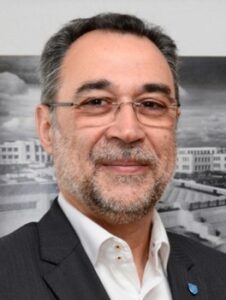 Luis M. Correia was born in Portugal, in 1958. He received the Ph.D. in Electrical and Computer Engineering from IST (Univ. Lisbon) in 1991, where he is currently a Professor in Telecommunications, with his work focused on Wireless & Mobile Communications, with the research activities developed in the INESC-ID institute. He has acted as a consultant for the Portuguese telecommunications operators and regulator, besides other public and private entities, and has been in the Board of Directors of a telecommunications company. He has participated in 33 projects within European frameworks, having coordinated 6 and taken leadership responsibilities at various levels in many others, besides national ones. He has lectured 76 advanced training courses for industry and academia at the national and international levels. He has supervised over 230 M.Sc./Ph.D. students, having edited 6 books, contribute to European strategic documents, and authored over 550 papers in international and national journals and conferences, for which served also as a reviewer, editor and board member. Internationally, he was part of 40 Ph.D. juries, and over 80 research projects and institutions evaluation committees for funding agencies in 12 countries, and the European Commission and COST. He has been the Chairman of Conference, of the Technical Programme Committee and of the Steering Committee of 25 major conferences, besides other several duties. He was a National Delegate to the COST Domain Committee on ICT. He has launched and served as Chairman of the IEEE Communications Society Portugal Chapter, besides being involved in several other duties in this society at the global level. He is an Honorary Professor of the Gdańsk University of Technology (Poland) and a recipient of the 2021 EurAAP Propagation Award “for leadership in the field of propagation for wireless and mobile communications”.
Luis M. Correia was born in Portugal, in 1958. He received the Ph.D. in Electrical and Computer Engineering from IST (Univ. Lisbon) in 1991, where he is currently a Professor in Telecommunications, with his work focused on Wireless & Mobile Communications, with the research activities developed in the INESC-ID institute. He has acted as a consultant for the Portuguese telecommunications operators and regulator, besides other public and private entities, and has been in the Board of Directors of a telecommunications company. He has participated in 33 projects within European frameworks, having coordinated 6 and taken leadership responsibilities at various levels in many others, besides national ones. He has lectured 76 advanced training courses for industry and academia at the national and international levels. He has supervised over 230 M.Sc./Ph.D. students, having edited 6 books, contribute to European strategic documents, and authored over 550 papers in international and national journals and conferences, for which served also as a reviewer, editor and board member. Internationally, he was part of 40 Ph.D. juries, and over 80 research projects and institutions evaluation committees for funding agencies in 12 countries, and the European Commission and COST. He has been the Chairman of Conference, of the Technical Programme Committee and of the Steering Committee of 25 major conferences, besides other several duties. He was a National Delegate to the COST Domain Committee on ICT. He has launched and served as Chairman of the IEEE Communications Society Portugal Chapter, besides being involved in several other duties in this society at the global level. He is an Honorary Professor of the Gdańsk University of Technology (Poland) and a recipient of the 2021 EurAAP Propagation Award “for leadership in the field of propagation for wireless and mobile communications”.
Speakers:
Jaime Tatis, Vice-President of AI and insights, TELUS
Song Zhang, Huawei Technologies Canada
Elvino Sousa, University of Toronto
Daniel B. da Costa, Technology Innovation Institute (TII)
Speaker Bios:
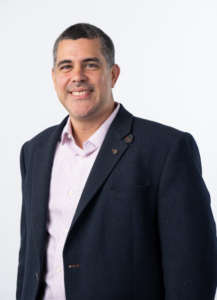 Jaime Tatis is a visionary and technology thought leader with strong business acumen and a proven track record on collaborating with both technical and non-technical teams to drive critical initiatives. Jaime is passionate about building and developing diversely skilled high-performance teams, growing future leaders and driving workforce efficiency through continuous improvement and innovation.
Jaime Tatis is a visionary and technology thought leader with strong business acumen and a proven track record on collaborating with both technical and non-technical teams to drive critical initiatives. Jaime is passionate about building and developing diversely skilled high-performance teams, growing future leaders and driving workforce efficiency through continuous improvement and innovation.
As the Vice-President of Data Strategy & Enablement at TELUS, a world-leading communications technology company, Jaime works with partners across the TELUS family of companies leading the advancement of data strategy and the company’s cultural shift to create cutting-edge customer technology solutions. By thoughtfully providing data insights and analytics, along with next-generation cloud-based architecture to enable world-class Artificial Intelligence and Machine Learning capabilities, Jaime is improving business outcomes and customer experiences for TELUS.
Jaime holds a Master of Electrical Engineering degree from Concordia University (Montreal, Canada) and an executive MBA from Ivey School of Business (London, Canada). He regularly participates and speaks at various AI and data analytics international events. When he’s not at work Jaime can be found mentoring next generation technology leaders and spending time with his family.
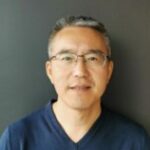 Song Zhang is VP Research Strategy and Partnership at R&D, Huawei Technologies Canada. He oversees Huawei Canada R&D planning and research partnership, being instrumental in building sustained R&D growth and capabilities. Song has over 27 years experience in Canada’s ICT industry. Before joining Huawei Canada in 2010, Song worked in the industries of wireless, broadband communications products and technologies development, as well as ICT technologies IP licensing. Song graduated from University of Toronto in 1996 with a M.A.Sc degree in digital communications.
Song Zhang is VP Research Strategy and Partnership at R&D, Huawei Technologies Canada. He oversees Huawei Canada R&D planning and research partnership, being instrumental in building sustained R&D growth and capabilities. Song has over 27 years experience in Canada’s ICT industry. Before joining Huawei Canada in 2010, Song worked in the industries of wireless, broadband communications products and technologies development, as well as ICT technologies IP licensing. Song graduated from University of Toronto in 1996 with a M.A.Sc degree in digital communications.
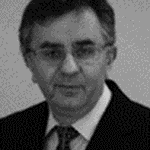 Elvino S. Sousa (Fellow, IEEE) received the B.A.Sc. degree in engineering science and the M.A.Sc. degree in electrical engineering from the University of Toronto, in 1980 and 1982, respectively, and the Ph.D. degree in electrical engineering from the University of Southern California, in 1985. He pioneered the area of wireless communications with the University of Toronto, where he is currently the Director of the Wireless Laboratory, which has undertaken research on wireless systems for the past 28 years. Since 1986, he has been with the Department of Electrical and Computer Engineering, University of Toronto, where he is also a Professor and the Jeffrey Skoll Professor of computer network architecture. He has also been invited to give numerous lectures and short courses on spread spectrum, code division multiple access, and wireless systems in many countries. He has also been a consultant to the industry and Governments internationally in the area of wireless systems. He has also been involved in various standardization and industry related wireless activities and is actively participating in NGMN as an Advisor. He is also the inventor of the autonomous infrastructure wireless network concept. His current interests are in the areas of autonomous infrastructure wireless networks, cognitive radio, self-configurable wireless networks, and two-tier networks. He was the Technical Program Chair of PIMRC’95, the Vice Technical Program Chair of Globecom’99, and the Co-Technical Program Chair of WPMC’10 and PIMRC’11. He has been involved in the technical program committee of numerous international conferences. He was the Chair of the IEEE Technical Committee on Personal Communications. He has spent sabbatical leaves with Qualcomm and Sony CSL/ATL. He received the Queen Elizabeth II Golden Jubilee Medal.
Elvino S. Sousa (Fellow, IEEE) received the B.A.Sc. degree in engineering science and the M.A.Sc. degree in electrical engineering from the University of Toronto, in 1980 and 1982, respectively, and the Ph.D. degree in electrical engineering from the University of Southern California, in 1985. He pioneered the area of wireless communications with the University of Toronto, where he is currently the Director of the Wireless Laboratory, which has undertaken research on wireless systems for the past 28 years. Since 1986, he has been with the Department of Electrical and Computer Engineering, University of Toronto, where he is also a Professor and the Jeffrey Skoll Professor of computer network architecture. He has also been invited to give numerous lectures and short courses on spread spectrum, code division multiple access, and wireless systems in many countries. He has also been a consultant to the industry and Governments internationally in the area of wireless systems. He has also been involved in various standardization and industry related wireless activities and is actively participating in NGMN as an Advisor. He is also the inventor of the autonomous infrastructure wireless network concept. His current interests are in the areas of autonomous infrastructure wireless networks, cognitive radio, self-configurable wireless networks, and two-tier networks. He was the Technical Program Chair of PIMRC’95, the Vice Technical Program Chair of Globecom’99, and the Co-Technical Program Chair of WPMC’10 and PIMRC’11. He has been involved in the technical program committee of numerous international conferences. He was the Chair of the IEEE Technical Committee on Personal Communications. He has spent sabbatical leaves with Qualcomm and Sony CSL/ATL. He received the Queen Elizabeth II Golden Jubilee Medal.
 Dr. Daniel B. da Costa was born in Fortaleza, Ceará, Brazil, in 1981. He received the B.Sc. degree in Telecommunications from the Military Institute of Engineering (IME), Rio de Janeiro, Brazil, in 2003, and the M.Sc. and Ph.D. degrees in Electrical Engineering, Area: Telecommunications, from the University of Campinas, SP, Brazil, in 2006 and 2008, respectively. His Ph.D thesis was awarded the Best Ph.D. Thesis in Electrical Engineering by the Brazilian Ministry of Education (CAPES) at the 2009 CAPES Thesis Contest. From 2008 to 2009, he was a Postdoctoral Research Fellow with INRS-EMT, University of Quebec, Montreal, QC, Canada. From 2010 to 2022, he was with the Federal University of Ceará. In 2019, Dr. da Costa was on sabbatical leave. From January 2019 to April 2019, he was Visiting Professor at Lappeenranta University of Technology (LUT), Finland, with financial support from Nokia Foundation. He was awarded the prestigious Nokia Visiting Professor Grant in 2018 and 2021. From May 2019 to August 2019, he was with King Abdullah University of Science and Technology (KAUST), Saudi Arabia, as a Visiting Faculty, and from September 2019 to November 2019, he was a Visiting Researcher at Istanbul Medipol University, Turkey. From 2021 to 2022, he was Full Professor at the National Yunlin University of Science and Technology (YunTech), Taiwan. He is currently a Principal Researcher at the Technology Innovation Institute (TII), a global research center and the applied pillar of Abu Dhabi’s Advanced Technology Research Council. He is also Editor-in-Chief of the IEEE Communications Letters and Specialty Chief Editor of the Frontiers in Communications and Networks – Wireless Communications Section.
Dr. Daniel B. da Costa was born in Fortaleza, Ceará, Brazil, in 1981. He received the B.Sc. degree in Telecommunications from the Military Institute of Engineering (IME), Rio de Janeiro, Brazil, in 2003, and the M.Sc. and Ph.D. degrees in Electrical Engineering, Area: Telecommunications, from the University of Campinas, SP, Brazil, in 2006 and 2008, respectively. His Ph.D thesis was awarded the Best Ph.D. Thesis in Electrical Engineering by the Brazilian Ministry of Education (CAPES) at the 2009 CAPES Thesis Contest. From 2008 to 2009, he was a Postdoctoral Research Fellow with INRS-EMT, University of Quebec, Montreal, QC, Canada. From 2010 to 2022, he was with the Federal University of Ceará. In 2019, Dr. da Costa was on sabbatical leave. From January 2019 to April 2019, he was Visiting Professor at Lappeenranta University of Technology (LUT), Finland, with financial support from Nokia Foundation. He was awarded the prestigious Nokia Visiting Professor Grant in 2018 and 2021. From May 2019 to August 2019, he was with King Abdullah University of Science and Technology (KAUST), Saudi Arabia, as a Visiting Faculty, and from September 2019 to November 2019, he was a Visiting Researcher at Istanbul Medipol University, Turkey. From 2021 to 2022, he was Full Professor at the National Yunlin University of Science and Technology (YunTech), Taiwan. He is currently a Principal Researcher at the Technology Innovation Institute (TII), a global research center and the applied pillar of Abu Dhabi’s Advanced Technology Research Council. He is also Editor-in-Chief of the IEEE Communications Letters and Specialty Chief Editor of the Frontiers in Communications and Networks – Wireless Communications Section.
SS-8: How to write Technical Papers
Date: 07 September
Time: 11:00 – 12:30
Location: Harbour B
Moderator: Shahrokh Valaee, University of Toronto, Canada
Moderator Bio:
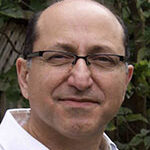 Shahrokh Valaee is a Professor with the Edward S. Rogers Sr. Department of Electrical and Computer Engineering, University of Toronto, and the holder of Nortel Chair of Network Architectures and Services. He is the Founder and the Director of the Wireless Innovation Research Laboratory (WIRLab) at the University of Toronto. Professor Valaee was the TPC Co-Chair and the Local Organization Chair of the IEEE Personal Mobile Indoor Radio Communication (PIMRC) Symposium 2011. He was the TPC Co-Chair of ICT 2015, and PIMRC 2017, and the Track Co-Chair of WCNC 2014, PIMRC 2020, VTC Fall 2020 and 2023. He is the co-chair of the organizing committee for PIMRC 2023. From December 2010 to December 2012, he was the Associate Editor of the IEEE Signal Processing Letters. From 2010 to 2015, he served as an Editor of IEEE Transactions on Wireless Communications. Currently, he is an Editor of the Journal of Computer and System Science and serves as a Distinguished Lecturer for IEEE Communication Society. He was the co-recipient of the best paper award in the IEEE Machine Learning for Signal Processing (MLSP) 2020 workshop. Professor Valaee is a Fellow of the Engineering Institute of Canada, and a Fellow of IEEE.
Shahrokh Valaee is a Professor with the Edward S. Rogers Sr. Department of Electrical and Computer Engineering, University of Toronto, and the holder of Nortel Chair of Network Architectures and Services. He is the Founder and the Director of the Wireless Innovation Research Laboratory (WIRLab) at the University of Toronto. Professor Valaee was the TPC Co-Chair and the Local Organization Chair of the IEEE Personal Mobile Indoor Radio Communication (PIMRC) Symposium 2011. He was the TPC Co-Chair of ICT 2015, and PIMRC 2017, and the Track Co-Chair of WCNC 2014, PIMRC 2020, VTC Fall 2020 and 2023. He is the co-chair of the organizing committee for PIMRC 2023. From December 2010 to December 2012, he was the Associate Editor of the IEEE Signal Processing Letters. From 2010 to 2015, he served as an Editor of IEEE Transactions on Wireless Communications. Currently, he is an Editor of the Journal of Computer and System Science and serves as a Distinguished Lecturer for IEEE Communication Society. He was the co-recipient of the best paper award in the IEEE Machine Learning for Signal Processing (MLSP) 2020 workshop. Professor Valaee is a Fellow of the Engineering Institute of Canada, and a Fellow of IEEE.
Speakers:
Jeffrey Andrews, Director, The University of Texas at Austin
Ekram Hossein, University of Manitoba
Halim Yanikomeroglu, Carleton University
Lian Zhao, Toronto Metropolitan University
Speaker Bios:
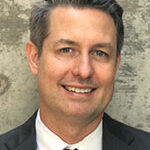 Jeffrey Andrews received the B.S. in Engineering with High Distinction from Harvey Mudd College, and the M.S. and Ph.D. in Electrical Engineering from Stanford University. He is the Truchard Family Endowed Chair in Engineering at the University of Texas at Austin where is Director of 6G@UT and conducts research on advanced wireless communication systems. Dr. Andrews is an IEEE Fellow and ISI Highly Cited Researcher and has been co-recipient of over 16 best paper awards, the 2015 Terman Award, the NSF CAREER Award, the 2021 Gordon Lepley Memorial Teaching Award, the 2021 IEEE ComSoc Joe LoCicero Service Award, and the 2019 IEEE Kiyo Tomiyasu technical field award.
Jeffrey Andrews received the B.S. in Engineering with High Distinction from Harvey Mudd College, and the M.S. and Ph.D. in Electrical Engineering from Stanford University. He is the Truchard Family Endowed Chair in Engineering at the University of Texas at Austin where is Director of 6G@UT and conducts research on advanced wireless communication systems. Dr. Andrews is an IEEE Fellow and ISI Highly Cited Researcher and has been co-recipient of over 16 best paper awards, the 2015 Terman Award, the NSF CAREER Award, the 2021 Gordon Lepley Memorial Teaching Award, the 2021 IEEE ComSoc Joe LoCicero Service Award, and the 2019 IEEE Kiyo Tomiyasu technical field award.
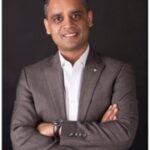 Ekram Hossain (F’15) is a Professor and the Associate Head (Graduate Studies) in the Department of Electrical and Computer Engineering at University of Manitoba, Canada. He is a Member (Class of 2016) of the College of the Royal Society of Canada. Also, he is a Fellow of the Canadian Academy of Engineering and a Fellow of the Engineering Institute of Canada. Dr. Hossain’s current research interests include design, analysis, and optimization beyond 5G cellular wireless networks. He was elevated to an IEEE Fellow “for contributions to spectrum management and resource allocation in cognitive and cellular radio networks”. He received the 2017 IEEE ComSoc TCGCC (Technical Committee on Green Communications & Computing) Distinguished Technical Achievement Recognition Award “for outstanding technical leadership and achievement in green wireless communications and networking”. Dr. Hossain has won several research awards including the “2017 IEEE Communications Society Best Survey Paper Award and the 2011 IEEE Communications Society Fred Ellersick Prize Paper Award. He was listed as a Clarivate Analytics Highly Cited Researcher in Computer Science in 2017, 2018, 2019, 2020, 2021, and 2022. Currently he serves as an Editor for the IEEE Transactions on Mobile Computing. Previously, he served as the Editor-in-Chief (EiC) of the IEEE Press (2018-2021) and the EiC of the IEEE Communications Surveys and Tutorials (2012-2016). He was a Distinguished Lecturer of the IEEE Communications Society and the IEEE Vehicular Technology Society. He served as the Director of Magazines for the IEEE Communications Society (2020-2021). Also, he was an elected member of the Board of Governors of the IEEE Communications Society for the term 2018-2020.
Ekram Hossain (F’15) is a Professor and the Associate Head (Graduate Studies) in the Department of Electrical and Computer Engineering at University of Manitoba, Canada. He is a Member (Class of 2016) of the College of the Royal Society of Canada. Also, he is a Fellow of the Canadian Academy of Engineering and a Fellow of the Engineering Institute of Canada. Dr. Hossain’s current research interests include design, analysis, and optimization beyond 5G cellular wireless networks. He was elevated to an IEEE Fellow “for contributions to spectrum management and resource allocation in cognitive and cellular radio networks”. He received the 2017 IEEE ComSoc TCGCC (Technical Committee on Green Communications & Computing) Distinguished Technical Achievement Recognition Award “for outstanding technical leadership and achievement in green wireless communications and networking”. Dr. Hossain has won several research awards including the “2017 IEEE Communications Society Best Survey Paper Award and the 2011 IEEE Communications Society Fred Ellersick Prize Paper Award. He was listed as a Clarivate Analytics Highly Cited Researcher in Computer Science in 2017, 2018, 2019, 2020, 2021, and 2022. Currently he serves as an Editor for the IEEE Transactions on Mobile Computing. Previously, he served as the Editor-in-Chief (EiC) of the IEEE Press (2018-2021) and the EiC of the IEEE Communications Surveys and Tutorials (2012-2016). He was a Distinguished Lecturer of the IEEE Communications Society and the IEEE Vehicular Technology Society. He served as the Director of Magazines for the IEEE Communications Society (2020-2021). Also, he was an elected member of the Board of Governors of the IEEE Communications Society for the term 2018-2020.
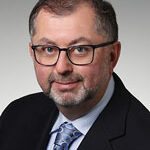 Dr. Halim Yanikomeroglu is a Professor of Systems and Computer Engineering at Carleton University, Canada. His research group has made substantial contributions to 4G and 5G wireless technologies; his group’s current focus is the wireless access architecture for 2030s and 2040s, and non-terrestrial networks (NTN). His extensive collaboration with industry resulted in 39 granted patents. He is a Fellow of IEEE, EIC (Engineering Institute of Canada), and CAE (Canadian Academy of Engineering), and a Distinguished Speaker for both IEEE Communications Society and IEEE Vehicular Technology Society. Dr. Yanikomeroglu received several awards for his research, teaching and service.
Dr. Halim Yanikomeroglu is a Professor of Systems and Computer Engineering at Carleton University, Canada. His research group has made substantial contributions to 4G and 5G wireless technologies; his group’s current focus is the wireless access architecture for 2030s and 2040s, and non-terrestrial networks (NTN). His extensive collaboration with industry resulted in 39 granted patents. He is a Fellow of IEEE, EIC (Engineering Institute of Canada), and CAE (Canadian Academy of Engineering), and a Distinguished Speaker for both IEEE Communications Society and IEEE Vehicular Technology Society. Dr. Yanikomeroglu received several awards for his research, teaching and service.
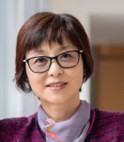 Lian Zhao received the Ph.D. degree from the Department of Electrical and Computer Engineering (ELCE), University of Waterloo, Canada, in 2002. She joined the Department of Electrical and Computer Engineering at Toronto Metropolitan University (formerly Ryerson University), Canada, in 2003. Her research interests are in the areas of wireless communications, resource management, mobile edge computing, caching and communications, and IoV networks.
Lian Zhao received the Ph.D. degree from the Department of Electrical and Computer Engineering (ELCE), University of Waterloo, Canada, in 2002. She joined the Department of Electrical and Computer Engineering at Toronto Metropolitan University (formerly Ryerson University), Canada, in 2003. Her research interests are in the areas of wireless communications, resource management, mobile edge computing, caching and communications, and IoV networks.
She has been an IEEE Communication Society (ComSoc) and IEEE Vehicular Technology (VTS) Distinguished Lecturer (DL); received the Best Land Transportation Paper Award from IEEE Vehicular Technology Society in 2016, Top 15 Editor Award in 2016 for IEEE Transaction on Vehicular Technology, Best Paper Award from the 2013 International Conference on Wireless Communications and Signal Processing (WCSP), and the Canada Foundation for Innovation (CFI) New Opportunity Research Award in 2005.
She has been serving as an Editor for IEEE Transactions on Wireless Communications, IEEE Internet of Things Journal, and IEEE Transactions on Vehicular Technology (2013-2021). She served as a co-Chair of Wireless Communication Symposium for IEEE Globecom 2020 and IEEE ICC 2018; Finance co-Chair for 2021 ICASSP; Local Arrangement co-Chair for IEEE VTC Fall 2017 and IEEE Infocom 2014; co-Chair of Communication Theory Symposium for IEEE Globecom 2013. She has been an elected member for the Board of Governor (BoG) of VTS since 2023. She has severed as a panel expert in various federal, provincial, and international evaluation committees.
SS 9: Mingle with Distinguished Lectures 01
Date: 06 September 2023
Time: 16:00 – 17:30
Location: Harbour B
IEEE VTS/ComSoc Toronto Chapters organized this joint chapter event, as a special session at PIMRC. Six DL (Distinguished Lecturer) talks are scheduled. The DLs are coming from both academia and industry. The topics range from 6G technologies, integrated sensing and communications, edge computing and edge AI, and advanced location/tracking technologies, etc. Local VTS/ComSoc DLs will serve as Chairs for the DL talks. It brings a great opportunity for the local chapter members and conference attendees to mingle and exchange with DLs, from both local and international universities and organizations.
Preliminary Program – Subject to change:
Moderators:
Jelena Misic, Toronto Metropolitan University, DL for VTS
Melike Erol-Kantarci, University of Ottawa, DL for ComSoc
Xiaodong Lin, University of Guelf, DL for VTS
14:00 – 14:30
Sensing and Localization for 6G Networks
Chair: Jelean Misic, Toronto Metropolitan University, DL for VTS
Speaker:
Shahrokh Valaee, University of Toronto, DL for ComSoc and VTS
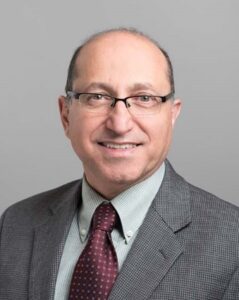 Speaker Biography: Shahrokh Valaee received his Ph.D. degree from McGill University, Canada. He is a Professor with the Edward S. Rogers Sr. Department of Electrical and Computer Engineering, University of Toronto. He is the Founder and the Director of the Wireless and Internet Research Laboratory (WIRLab) at the University of Toronto. Professor Valaee was the TPC Co-Chair and the Local Organization Chair of the IEEE Personal Mobile Indoor Radio Communication (PIMRC) Symposium 2011. He was the TPC Chair of PIMRC 2017, the Track Co-Chair of WCNC 2014, the TPC Co-Chair of ICT 2015. He has been the guest editor for various journals. From December 2010 to December 2012, he was the Associate Editor of the IEEE Signal Processing Letters. From 2010 to 2015, he served as an Editor of IEEE Transactions on Wireless Communications. Currently, he is an Editor of Journal of Computer and System Science. Professor Valaee is a Fellow of IEEE, and a Fellow of the Engineering Institute of Canada.
Speaker Biography: Shahrokh Valaee received his Ph.D. degree from McGill University, Canada. He is a Professor with the Edward S. Rogers Sr. Department of Electrical and Computer Engineering, University of Toronto. He is the Founder and the Director of the Wireless and Internet Research Laboratory (WIRLab) at the University of Toronto. Professor Valaee was the TPC Co-Chair and the Local Organization Chair of the IEEE Personal Mobile Indoor Radio Communication (PIMRC) Symposium 2011. He was the TPC Chair of PIMRC 2017, the Track Co-Chair of WCNC 2014, the TPC Co-Chair of ICT 2015. He has been the guest editor for various journals. From December 2010 to December 2012, he was the Associate Editor of the IEEE Signal Processing Letters. From 2010 to 2015, he served as an Editor of IEEE Transactions on Wireless Communications. Currently, he is an Editor of Journal of Computer and System Science. Professor Valaee is a Fellow of IEEE, and a Fellow of the Engineering Institute of Canada.
14:30 – 15:00
Integrated Sensing and Communication (ISAC) – New Possibilities of the Future Wireless
Chair: Melike Erol-Kanarci, University of Ottawa, DL for ComSoc
Speaker:
Yan Chen, Huawei, DL for VTS
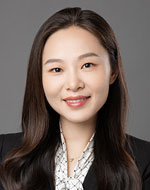 Speaker Bio: Yan Chen received her B.Sc. and Ph.D. degrees from Chu Kochen Honored College and Institute of Information and Communication Engineering from Zhejiang University in 2004 and 2009, respectively. She was a visiting researcher at Hong Kong University of Science and Technology from 2008 to 2009. She joined Huawei Technologies Shanghai in 2009 and from 2010 to 2013, she was the project manager and technical leader of Huawei internal Green Radio project studying energy efficient solutions for wireless networks and also served as technical leader and manager of the Green Transmission Technology (GTT) project at GreenTouchTM Consortium. Since 2013, she is one of the key technical leaders on 5G air interface design and the related 3GPP standardization in Huawei, focusing on multiple access including NOMA transceivers, grantfree massive access, and ultra-reliable and low-latency communications. Now she is leading the 6G vision study in Huawei. Her research interests include novel 6G use cases and key capabilities such as collaborative robotics, new enabling technologies and architectures such as integrated sensing and communication (ISAC), network for distributed learning and inference, next generation multiple access (NGMA), as well as system level evaluation methodologies for new usage scenarios. She is Distinguished Lecturer of the IEEE Vehicle Technology Society. She serves as guest editor of IEEE Communications Magazine and Co-Chair of the Emerging Technology Initiative (ETI) on NGMA. She won the IEEE Communication Society Award for Advances in Communication in 2017.
Speaker Bio: Yan Chen received her B.Sc. and Ph.D. degrees from Chu Kochen Honored College and Institute of Information and Communication Engineering from Zhejiang University in 2004 and 2009, respectively. She was a visiting researcher at Hong Kong University of Science and Technology from 2008 to 2009. She joined Huawei Technologies Shanghai in 2009 and from 2010 to 2013, she was the project manager and technical leader of Huawei internal Green Radio project studying energy efficient solutions for wireless networks and also served as technical leader and manager of the Green Transmission Technology (GTT) project at GreenTouchTM Consortium. Since 2013, she is one of the key technical leaders on 5G air interface design and the related 3GPP standardization in Huawei, focusing on multiple access including NOMA transceivers, grantfree massive access, and ultra-reliable and low-latency communications. Now she is leading the 6G vision study in Huawei. Her research interests include novel 6G use cases and key capabilities such as collaborative robotics, new enabling technologies and architectures such as integrated sensing and communication (ISAC), network for distributed learning and inference, next generation multiple access (NGMA), as well as system level evaluation methodologies for new usage scenarios. She is Distinguished Lecturer of the IEEE Vehicle Technology Society. She serves as guest editor of IEEE Communications Magazine and Co-Chair of the Emerging Technology Initiative (ETI) on NGMA. She won the IEEE Communication Society Award for Advances in Communication in 2017.
15:00 – 1530
Data-Driven Anomaly Detection & Prediction for IoT
Chair: Xiaodong Lin, University of Guelph, DL for VTS
Speaker:
Phone Lin, National Taiwan University, DL for VTS
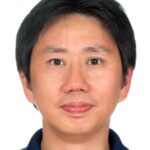 Speaker Bio: Phone Lin (M’02–SM’06-F’17) received his BS and Ph.D. degrees of Computer Science & Information Engineering from National Chiao Tung University, Hsinchu, Taiwan, in 1996 and 2001, respectively. He is currently a Distinguished Professor at National Taiwan University, where he holds a professorship within the Department of Computer Science and Information Engineering, Graduate Institute of Networking and Multimedia, and Internet of Things Research Center, College of EECS, and Graduate Institute of Medical Device and Imaging, College of Medicine. He served as the Chair of IEEE Vehicular Technology Society Taipei Chapter from 2014 to 2015. He serves on the editorial boards of several journals, such as the IEEE Wireless Communications and the IEEE Internet of Things Journal. In recognition of his research contributions, he has received numerous awards, such as the Outstanding Research Award from the Ministry of Science and Technology, Taiwan, in 2016, and the Best Young Researcher of IEEE ComSoc Asia-Pacific Young Researcher Award in 2007. He is a Fellow of IEEE
Speaker Bio: Phone Lin (M’02–SM’06-F’17) received his BS and Ph.D. degrees of Computer Science & Information Engineering from National Chiao Tung University, Hsinchu, Taiwan, in 1996 and 2001, respectively. He is currently a Distinguished Professor at National Taiwan University, where he holds a professorship within the Department of Computer Science and Information Engineering, Graduate Institute of Networking and Multimedia, and Internet of Things Research Center, College of EECS, and Graduate Institute of Medical Device and Imaging, College of Medicine. He served as the Chair of IEEE Vehicular Technology Society Taipei Chapter from 2014 to 2015. He serves on the editorial boards of several journals, such as the IEEE Wireless Communications and the IEEE Internet of Things Journal. In recognition of his research contributions, he has received numerous awards, such as the Outstanding Research Award from the Ministry of Science and Technology, Taiwan, in 2016, and the Best Young Researcher of IEEE ComSoc Asia-Pacific Young Researcher Award in 2007. He is a Fellow of IEEE
15:30 – 16:00
Coffee Break & Photos
SS 10: Mingle with Distinguished Lectures 02
Date: 07 September 2023
Time: 14:00 – 15:30
Location: Harbour B
Moderator: Lian Zhao, DL for ComSoc and VTS
14:00 – 14:30
Over-the-Air Federated Learning with Massive MIMO Using Antenna Selection
Chair: Dongmei Zhao, McMaster University
Speaker:
Ping Wang, DL for VTS York University, Toronto
Speaker Biography: 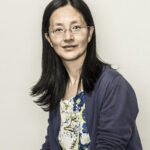 Ping Wang is an Associate Professor at the Department of Electrical Engineering and Computer Science, York University, and a Tier 2 York Research Chair. Prior to that, she worked with Nanyang Technological University, Singapore, from 2008 to 2018. Her research interests are mainly in the area of wireless communication networks, cloud computing and Internet of Things with the recent focus on integrating Artificial Intelligence (AI) techniques into communications networks. She has published more than 250 papers/conference proceedings papers. Her scholarly works have been widely disseminated through top-ranked IEEE journals/conferences and received the Best Paper Awards from IEEE Wireless Communications and Networking Conference (WCNC) in 2022, 2020 and 2012, from IEEE Communication Society: Green Communications & Computing Technical Committee in 2018, and from IEEE International Conference on Communications (ICC) in 2007. Her work received 21,000+ citations with H-index 70 (Google Scholar). She is an IEEE Fellow and a Distinguished Lecturer of the IEEE Vehicular Technology Society.
Ping Wang is an Associate Professor at the Department of Electrical Engineering and Computer Science, York University, and a Tier 2 York Research Chair. Prior to that, she worked with Nanyang Technological University, Singapore, from 2008 to 2018. Her research interests are mainly in the area of wireless communication networks, cloud computing and Internet of Things with the recent focus on integrating Artificial Intelligence (AI) techniques into communications networks. She has published more than 250 papers/conference proceedings papers. Her scholarly works have been widely disseminated through top-ranked IEEE journals/conferences and received the Best Paper Awards from IEEE Wireless Communications and Networking Conference (WCNC) in 2022, 2020 and 2012, from IEEE Communication Society: Green Communications & Computing Technical Committee in 2018, and from IEEE International Conference on Communications (ICC) in 2007. Her work received 21,000+ citations with H-index 70 (Google Scholar). She is an IEEE Fellow and a Distinguished Lecturer of the IEEE Vehicular Technology Society.
14:30 – 15:00
5G/6G Enabled Edge Computing and Edge AI
Chair: Ping Wang, York University, DL for VTS
Speaker: Fawzi Behmann, Management Consulting Inc., DL for ComSoc
 Speaker Bio: Fawzi Behmann is the founder and president of TelNet Management Consulting Inc., offering professional services in technology trends, positioning, and roadmap for building smart networking solutions. Fawzi is a co-author of the book “Collaborative Internet of Things for Future Smart Connected Life and Business”, and co-founder of the “IoT in Healthcare Consortium.” Fawzi held various executive and leadership positions with Tier 1 companies in the areas of communications and networking in Canada and US. He championed the development of Telecom Network Management systems, led efforts in rolling out product releases for network edge and core and marketed SoC product line and roadmap. As a senior member and volunteer with IEEE, Fawzi is serving as the North America Director for ComSoc and BoG member. He is a voting member of IEEE Conference Committee and Convene for conference planning. Fawzi is Future Networks Technical Community Chair elect, Co-Chair of Future Network Education working group, Co-Chair of IEEE Transdisciplinary Framework working group and contributor to Future Network Roadmap’s security, applications & services working groups. Fawzi chaired several conferences, summits, and panels. Among the most recent is the General Chair of IEEE WCNC 2022. Fawzi has received multiple awards for his leadership, including the IEEE USA professional leadership award, R5 outstanding member award, IEEE Communications Society NAB Exceptional Service Award, and Freescale CEO Diamond Chip Award.
Speaker Bio: Fawzi Behmann is the founder and president of TelNet Management Consulting Inc., offering professional services in technology trends, positioning, and roadmap for building smart networking solutions. Fawzi is a co-author of the book “Collaborative Internet of Things for Future Smart Connected Life and Business”, and co-founder of the “IoT in Healthcare Consortium.” Fawzi held various executive and leadership positions with Tier 1 companies in the areas of communications and networking in Canada and US. He championed the development of Telecom Network Management systems, led efforts in rolling out product releases for network edge and core and marketed SoC product line and roadmap. As a senior member and volunteer with IEEE, Fawzi is serving as the North America Director for ComSoc and BoG member. He is a voting member of IEEE Conference Committee and Convene for conference planning. Fawzi is Future Networks Technical Community Chair elect, Co-Chair of Future Network Education working group, Co-Chair of IEEE Transdisciplinary Framework working group and contributor to Future Network Roadmap’s security, applications & services working groups. Fawzi chaired several conferences, summits, and panels. Among the most recent is the General Chair of IEEE WCNC 2022. Fawzi has received multiple awards for his leadership, including the IEEE USA professional leadership award, R5 outstanding member award, IEEE Communications Society NAB Exceptional Service Award, and Freescale CEO Diamond Chip Award.
15:00 – 15:30
Digital Twin Model Selection for Feature Accuracy
Chair: Lian Zhao, Toronto Metropolitan University, DL for VTS and ComSoc
Speaker: Dongmei Zhao, McMaster University
Speaker Bio: 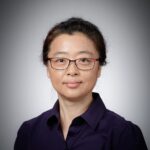 Dongmei Zhao received a BS degree in Wireless Communication from Northern Jiaotong University (now Beijing Jiaotong University), Beijing, China in 1992 and a Ph.D degree in the Department of Electrical and Computer Engineering, University of Waterloo, Waterloo, Ontario, Canada in June 2002. In July 2002 she joined the Department of Electrical and Computer Engineering at McMaster University, where she is a full professor. From April 2004 to March 2009 she was an adjunct assistant professor in the Department of Electrical and Computer Engineering at University of Waterloo. Dr. Zhao is an associate editor of the IEEE Internet of Things Journal. She served as an associate editor of the IEEE Transactions on Vehicular Technology between 2007 and 2017. She is a co-chair of the Project & Awards committee in the IEEE ComSoc Frontier Networking Symposium 2023, a co-chair of the Mobile and Wireless Networks Symposium of IEEE Global Communications Conference (GLOBECOM) 2020, a co-chair of the Wireless Networking Symposium in IEEE GLOBECOM 2007, a co-chair of the Green Computing, Networking, and Communications Symposium (GCNC) in International Conference on Computing, Networking and Communications 2020, a co-chair of the technical program committee for IEEE International Workshop on Computer Aided Modelling and Design of Communication Links and Networks (CAMAD) 2016, and a co-chair of the Vehicular Networks Symposium of IWCMC from 2012 to 2023. She is a senior member of IEEE and a Professional Engineer of Ontario. Her current research areas are mainly in digital twins, mobile computation offloading, energy efficient wireless networking, and vehicular communication networks.
Dongmei Zhao received a BS degree in Wireless Communication from Northern Jiaotong University (now Beijing Jiaotong University), Beijing, China in 1992 and a Ph.D degree in the Department of Electrical and Computer Engineering, University of Waterloo, Waterloo, Ontario, Canada in June 2002. In July 2002 she joined the Department of Electrical and Computer Engineering at McMaster University, where she is a full professor. From April 2004 to March 2009 she was an adjunct assistant professor in the Department of Electrical and Computer Engineering at University of Waterloo. Dr. Zhao is an associate editor of the IEEE Internet of Things Journal. She served as an associate editor of the IEEE Transactions on Vehicular Technology between 2007 and 2017. She is a co-chair of the Project & Awards committee in the IEEE ComSoc Frontier Networking Symposium 2023, a co-chair of the Mobile and Wireless Networks Symposium of IEEE Global Communications Conference (GLOBECOM) 2020, a co-chair of the Wireless Networking Symposium in IEEE GLOBECOM 2007, a co-chair of the Green Computing, Networking, and Communications Symposium (GCNC) in International Conference on Computing, Networking and Communications 2020, a co-chair of the technical program committee for IEEE International Workshop on Computer Aided Modelling and Design of Communication Links and Networks (CAMAD) 2016, and a co-chair of the Vehicular Networks Symposium of IWCMC from 2012 to 2023. She is a senior member of IEEE and a Professional Engineer of Ontario. Her current research areas are mainly in digital twins, mobile computation offloading, energy efficient wireless networking, and vehicular communication networks.
15:30 – 16:00
Coffee Break and Photos
SS 11: Discussion around Research and Industry application in the space of Generative AI: Application, Challenges and Inference
Date: 08 September 2023
Time: 14:00 – 15:30
Location: Metropolitan Centre
The panel discussion will be around recent developments in research in the generative AI space, the development and deployment challenges and what are some learning we have observed so far. The discussion will conclude with open questions to be addressed by research and industry
Moderator: Dr. Oshin Anand, DS Lead North America
 Oshin has over a decade of experience in Data science Domain and worked in Various industries including the public sector. She has in-depth understanding of deep learning models, State of art NLP models and advanced statistical and econometric modeling. She has experience in consulting frameworks and management tools and has designed various data science and analytics solutions. She has been leading data science teams and client engagements as well as Research in NLP Space.
Oshin has over a decade of experience in Data science Domain and worked in Various industries including the public sector. She has in-depth understanding of deep learning models, State of art NLP models and advanced statistical and econometric modeling. She has experience in consulting frameworks and management tools and has designed various data science and analytics solutions. She has been leading data science teams and client engagements as well as Research in NLP Space.
Speakers:
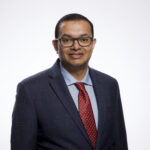 Sumon Acharjee, Chief Information Officer at City of Markham
Sumon Acharjee, Chief Information Officer at City of Markham
Brief profile : 25+ years’ experience in planning, developing, and implementing cutting edge information solutions to address business opportunities. Merge disparate technologies and personnel into team-centered units. Expertise in motivation, cross-functional team training, and retention of industry professionals. Solid technical training, team building, management development, and customer service skills. Strong systems design capability. Knowledge of Six Sigma, COBIT, ITIL and other process improvement techniques. MBA.
Linkedin: https://www.linkedin.com/in/sumonacharjee/
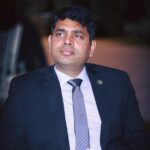 Dr. Anurag Sinha, President, CEO, Olympic Tool and Die Inc.
Dr. Anurag Sinha, President, CEO, Olympic Tool and Die Inc.https://www.linkedin.com/in/dranuragsinha/.
A business executive with over 25 years of experience as an innovator, serial entrepreneur, and consultant to the United Nations. Dr. Anurag Sinha’s experience includes managing multimillion-dollar projects & e-governance programs for state and local government agencies. Dr. Sinha has executed technology assessments and written strategic technology plans for the governments of Grenada, St. Vincent, and Dominica. He has also managed major programs in diplomacy for the Government of India, image integration, and executive information systems. He was involved during the development stage through Public Private Partnership and change management crucial for the successful implementation of projects. He has worked on projects financed by the UN, World Bank – InfoDev, Commonwealth Secretariat, and the European Union. A visionary product developer with deep education in research, analytics, and management. Dr. Sinha’s opportunistic drive always seeks to identify and leverage assets within his organization and stakeholders to achieve organizational goals. A relentless optimist who believes there is no failure, only feedback, and progression, Dr. Sinha’s industry reach spans the areas of healthcare, Metal Manufacturing, Oil and gas, Logistics, Food Processing Equipment Manufacturing, IT, Education, Hotel and hospitality, and Trading. Dr. Sinha’s enthusiastic approach to securing a mandate with Severstal will enable him to leverage his experience and the existing companies he manages to further expand trade within Steel and Steel related products across various continents around the world.
 Darryl Ricker, VP, Engineering at Viamo
Darryl Ricker, VP, Engineering at Viamo
With over 33 years of experience in the software industry, this seasoned leader excels in transforming struggling development teams into efficient, high-performing units. They have a proven track record of implementing revolutionary changes and continuous improvements, leading to significant increases in team velocity and release output. Their diverse experience spans startups to multinational corporations, with roles across all aspects of the software business. Skilled in both technical and strategic business discussions, they are adept at aligning engineering work with customer needs. Their leadership style is centered on fostering team growth, unity, and success.
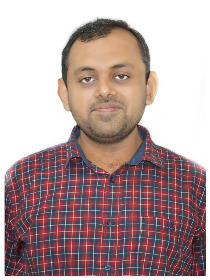 Shekhar Nayak, Assistant Professor – Speech Technology
Shekhar Nayak, Assistant Professor – Speech Technology
Dr. Shekhar has a doctorate in speech processing from IIT Hyderabad, India. He is currently associated with Campus Fryslân – University of Groningen, Netherlands as professor in speech technology , his research interests include speech processing, leveraging skills in signal processing, machine learning and deep learning and is currently working on zero resource speech processing, automatic speech recognition, language identification.
Linkedin :https://www.linkedin.com/in/shekhar-nayak-74328729/
